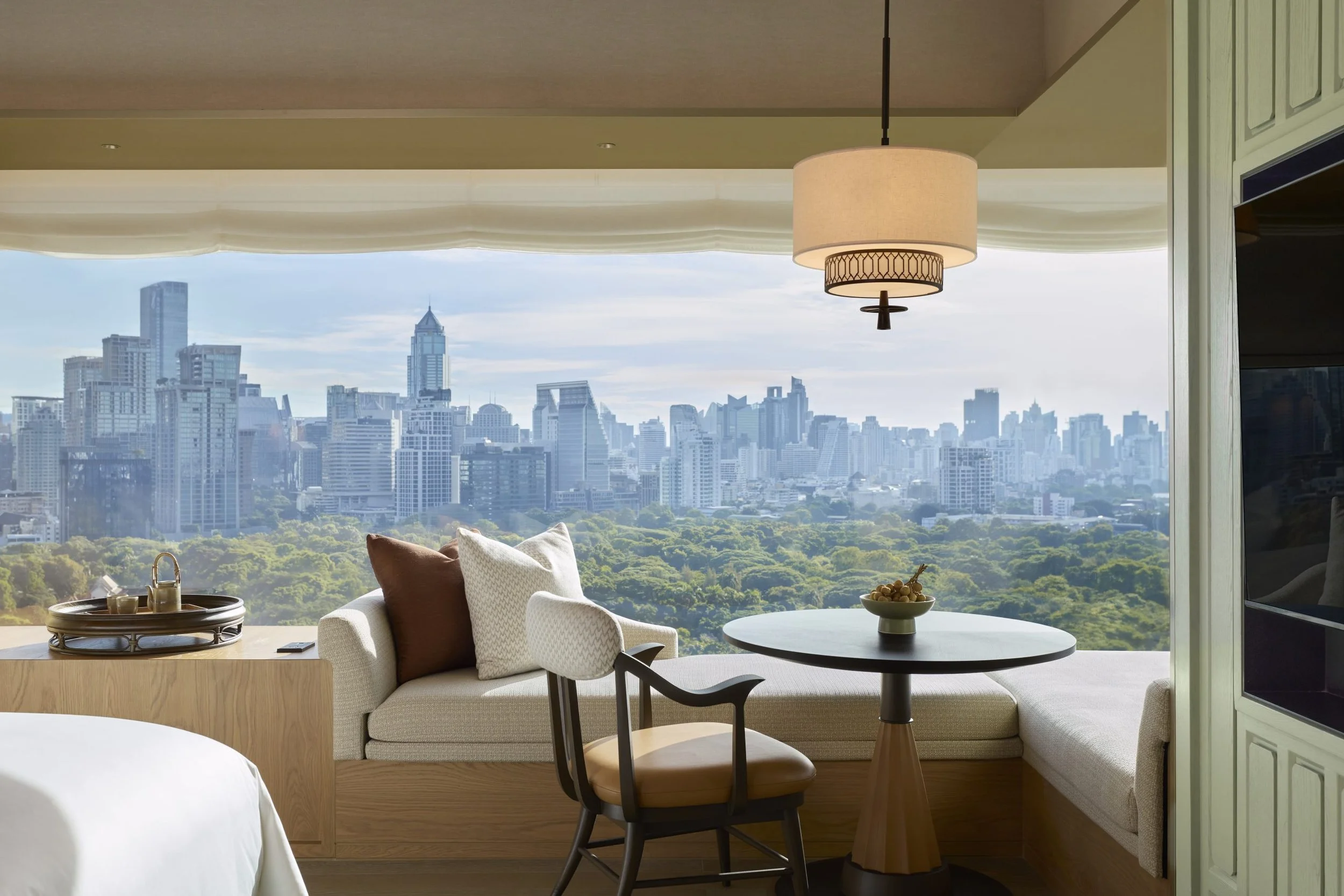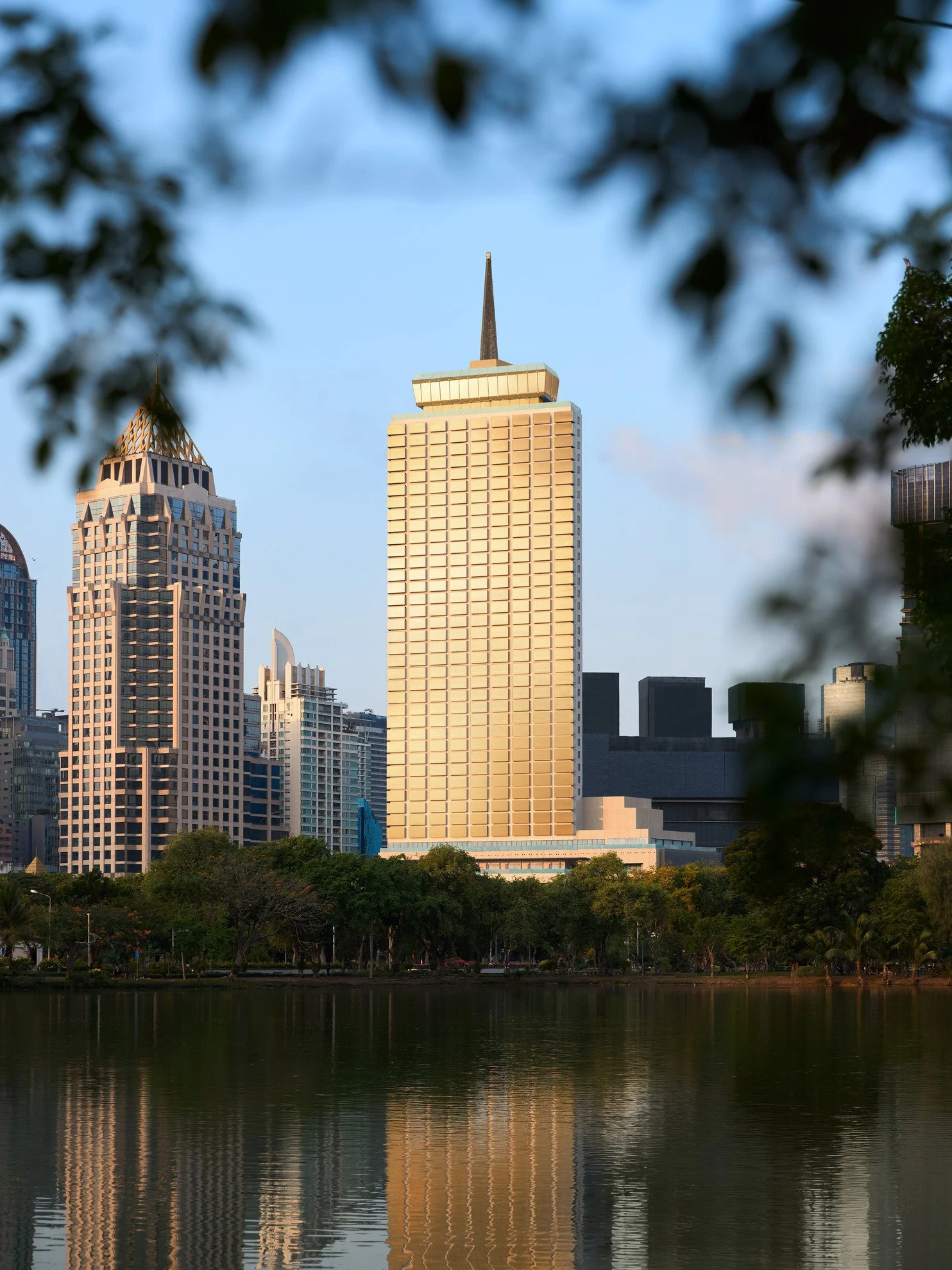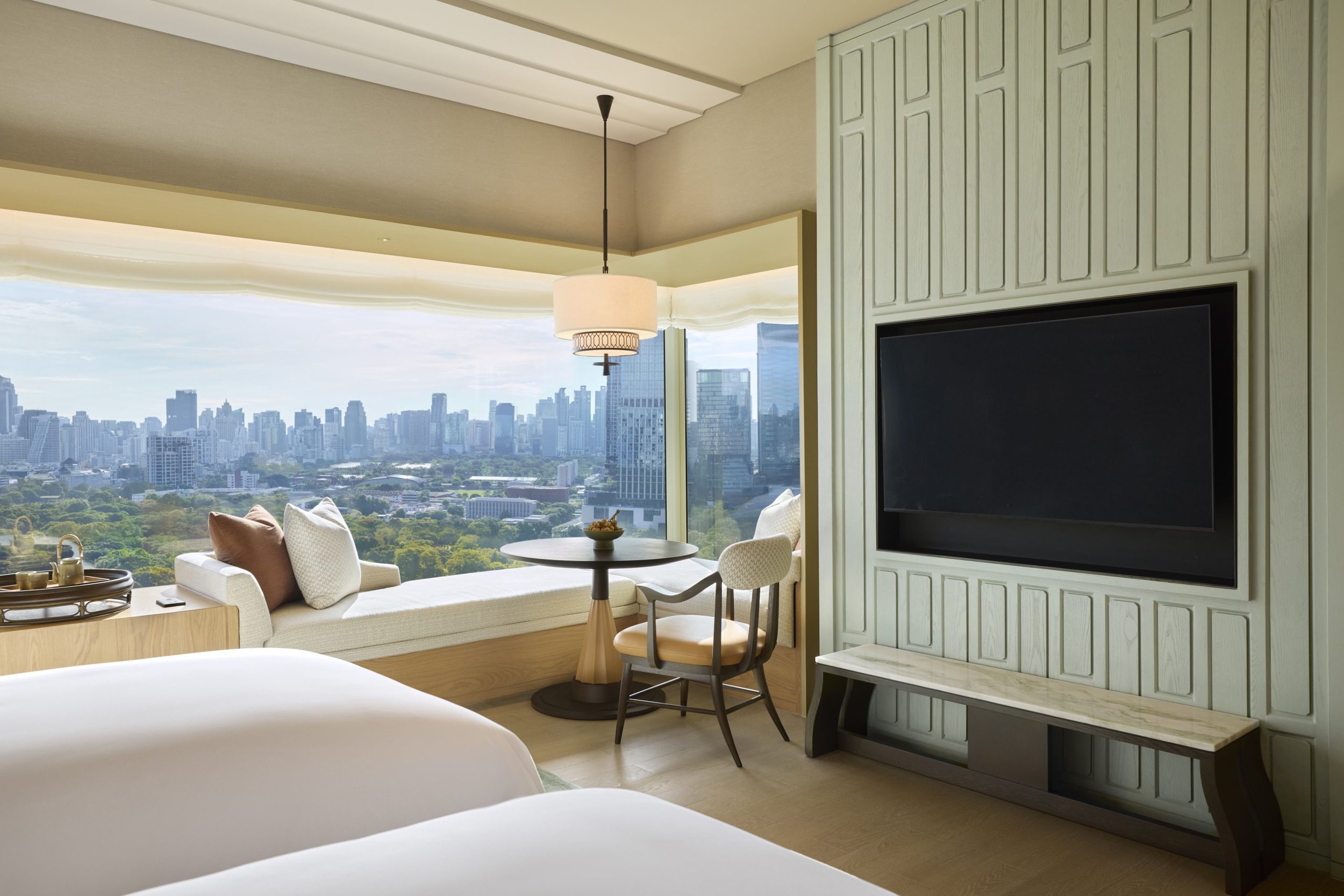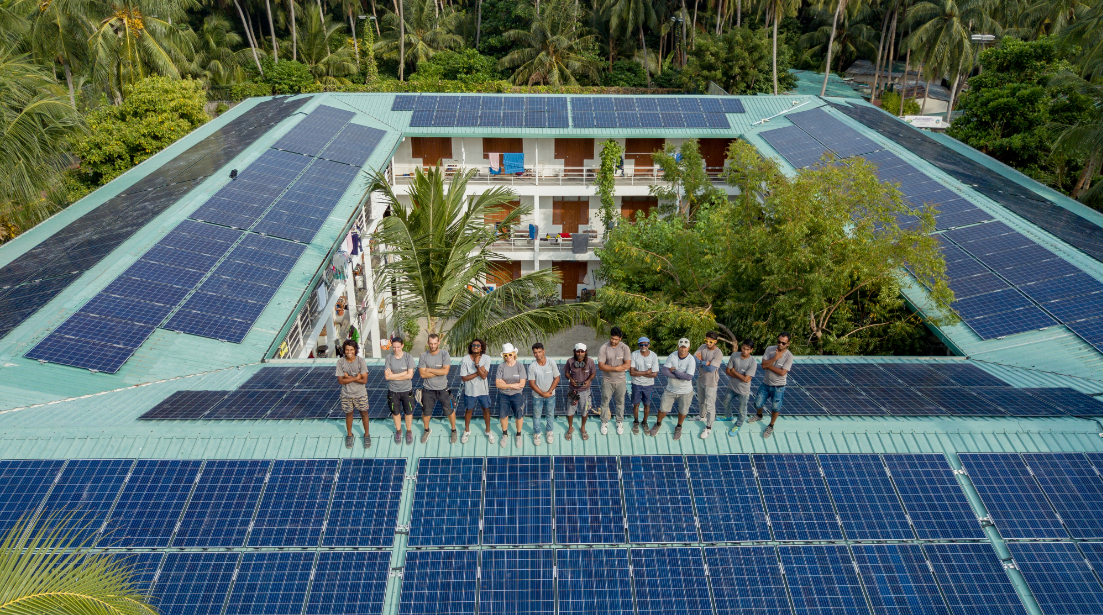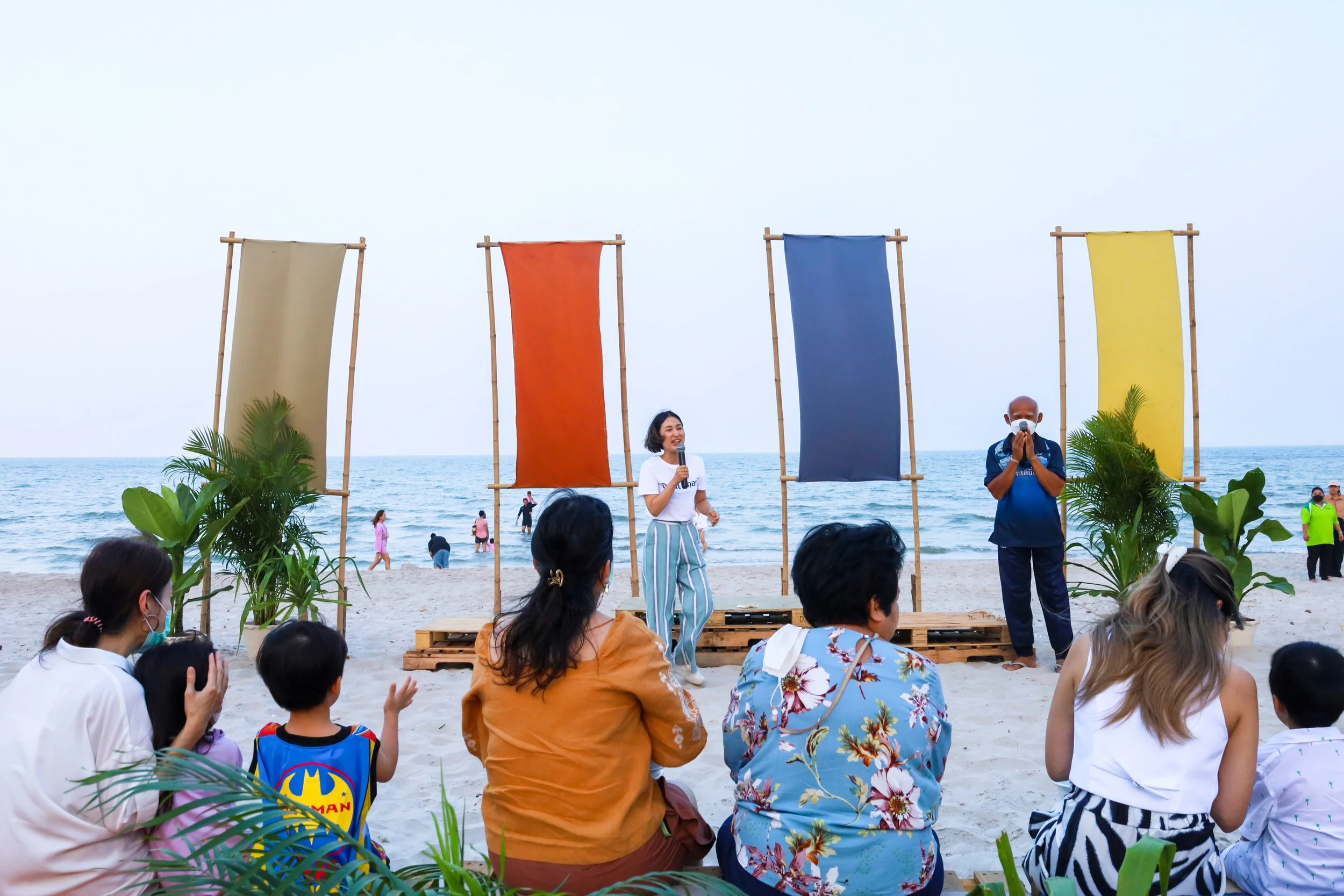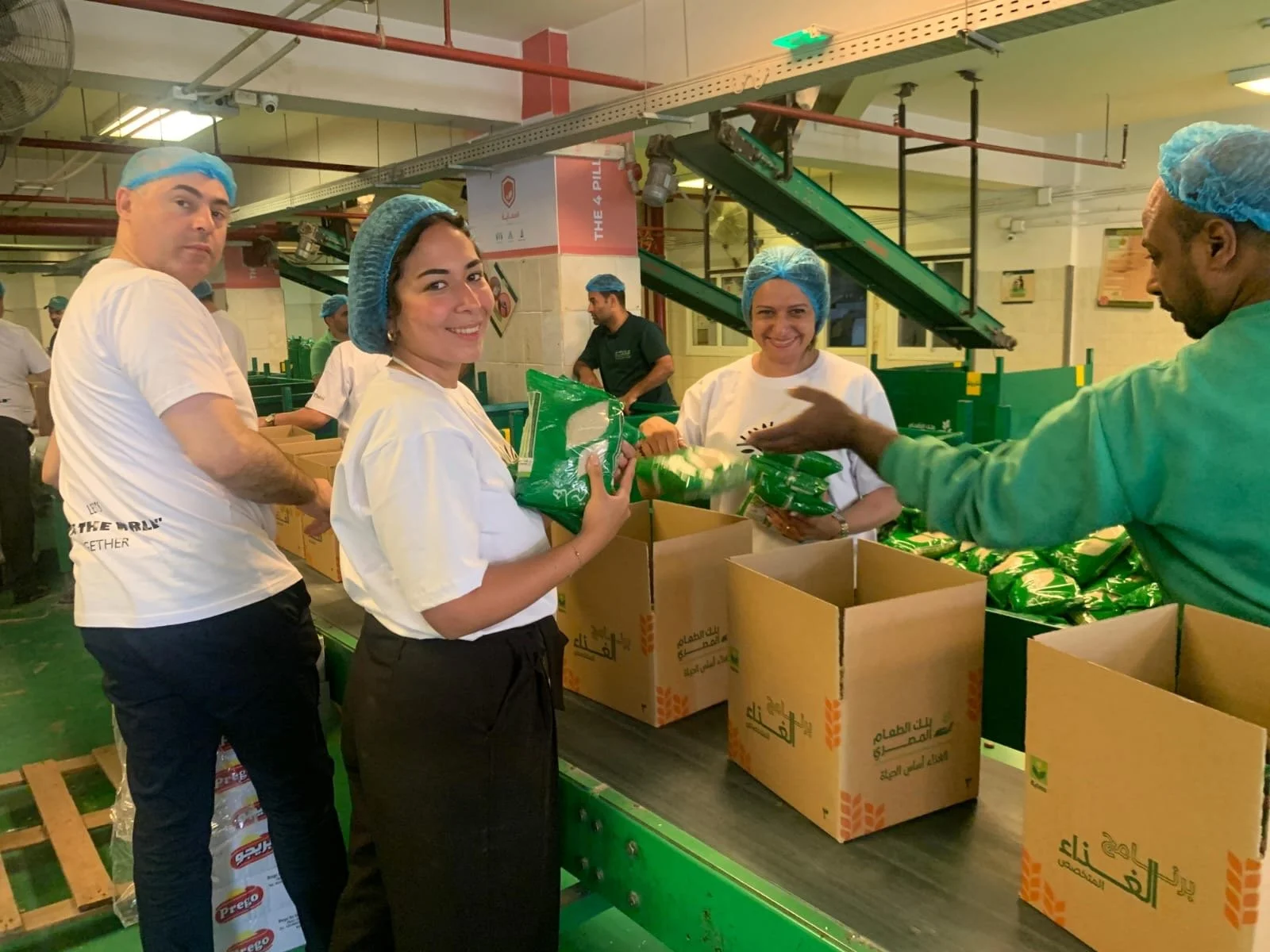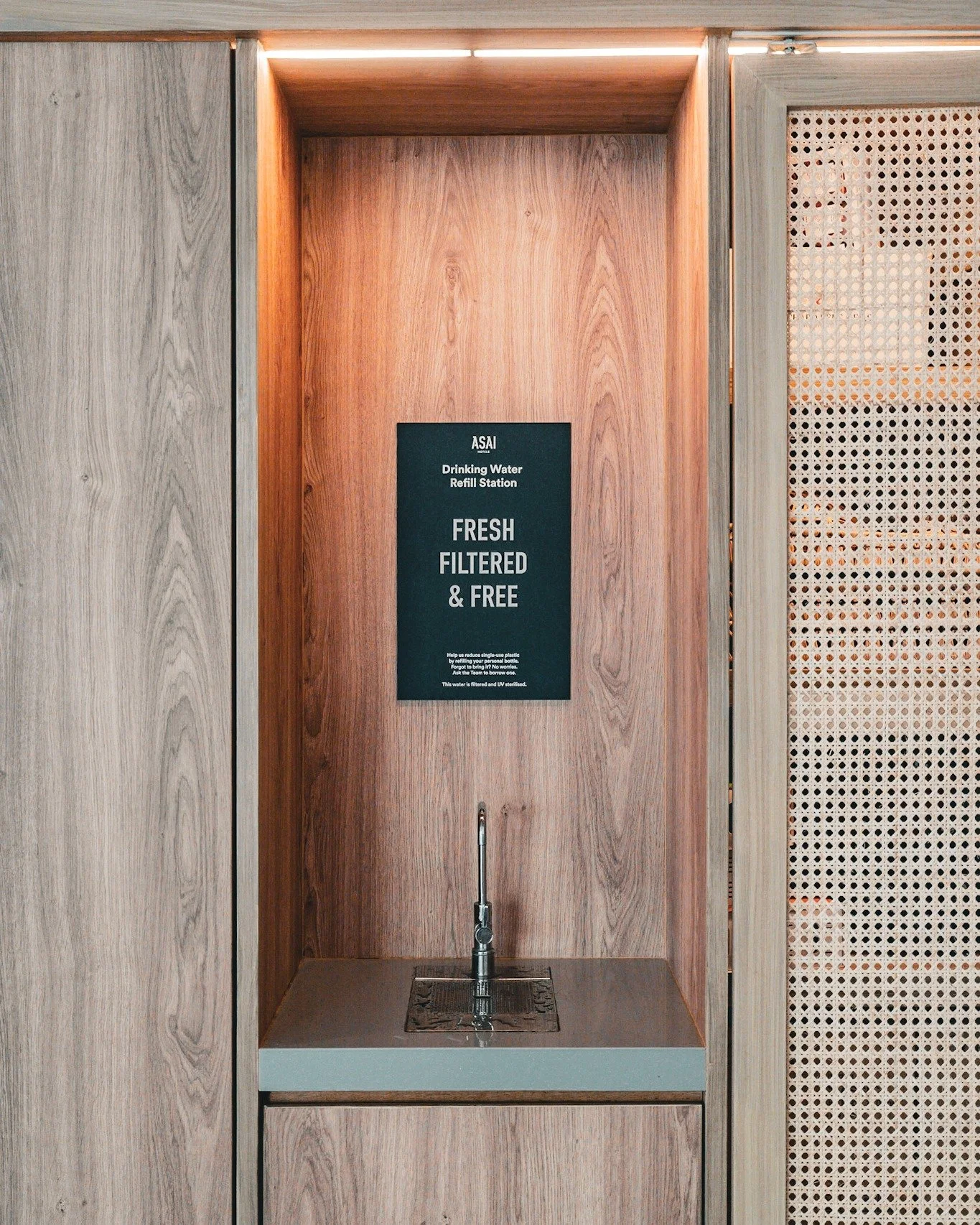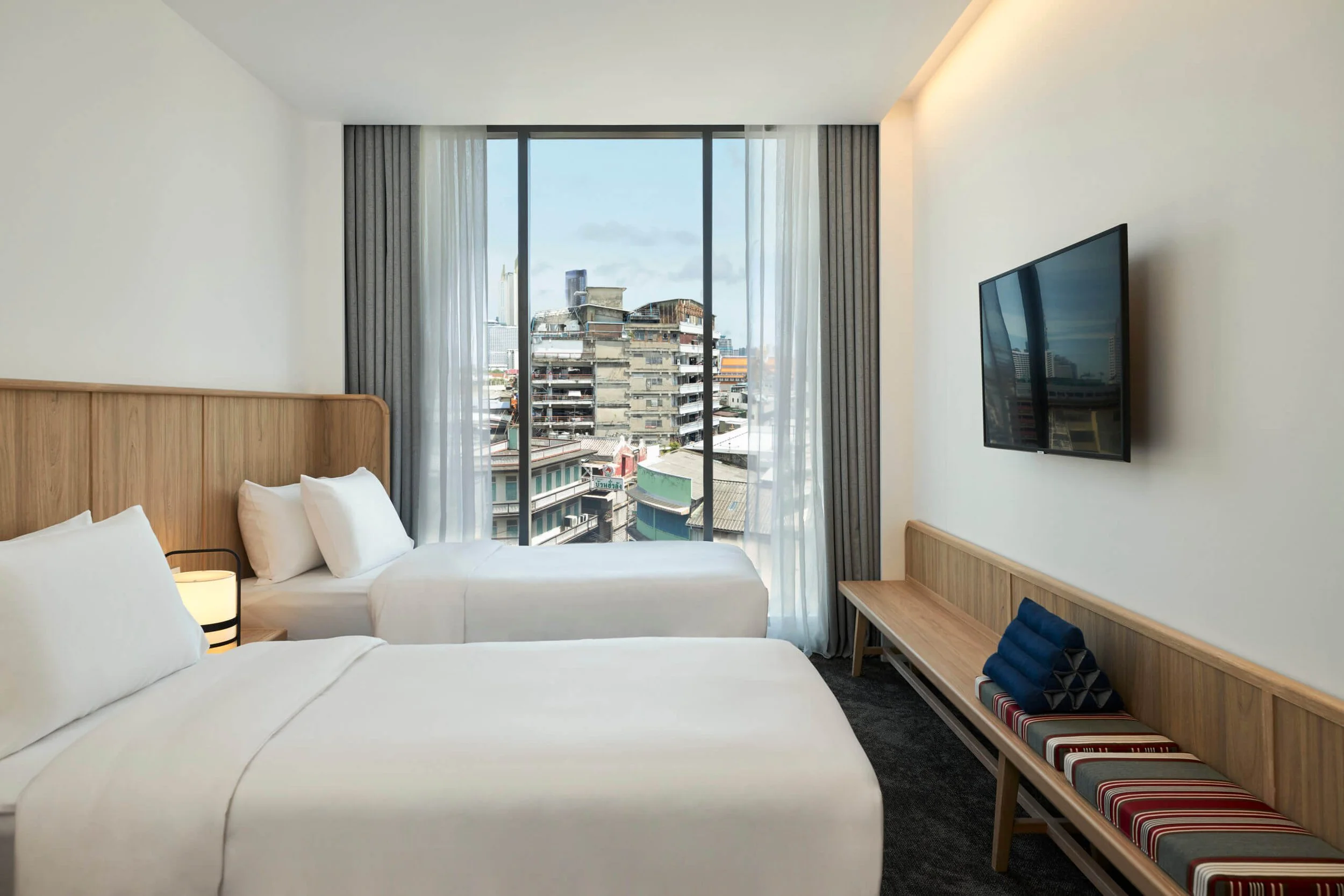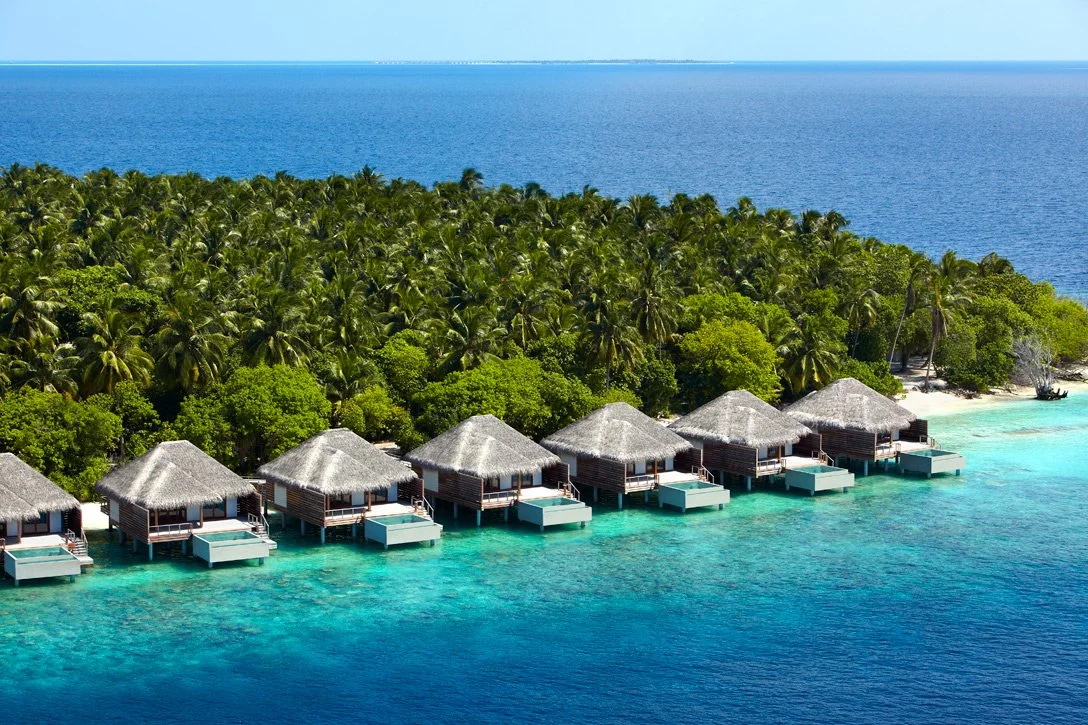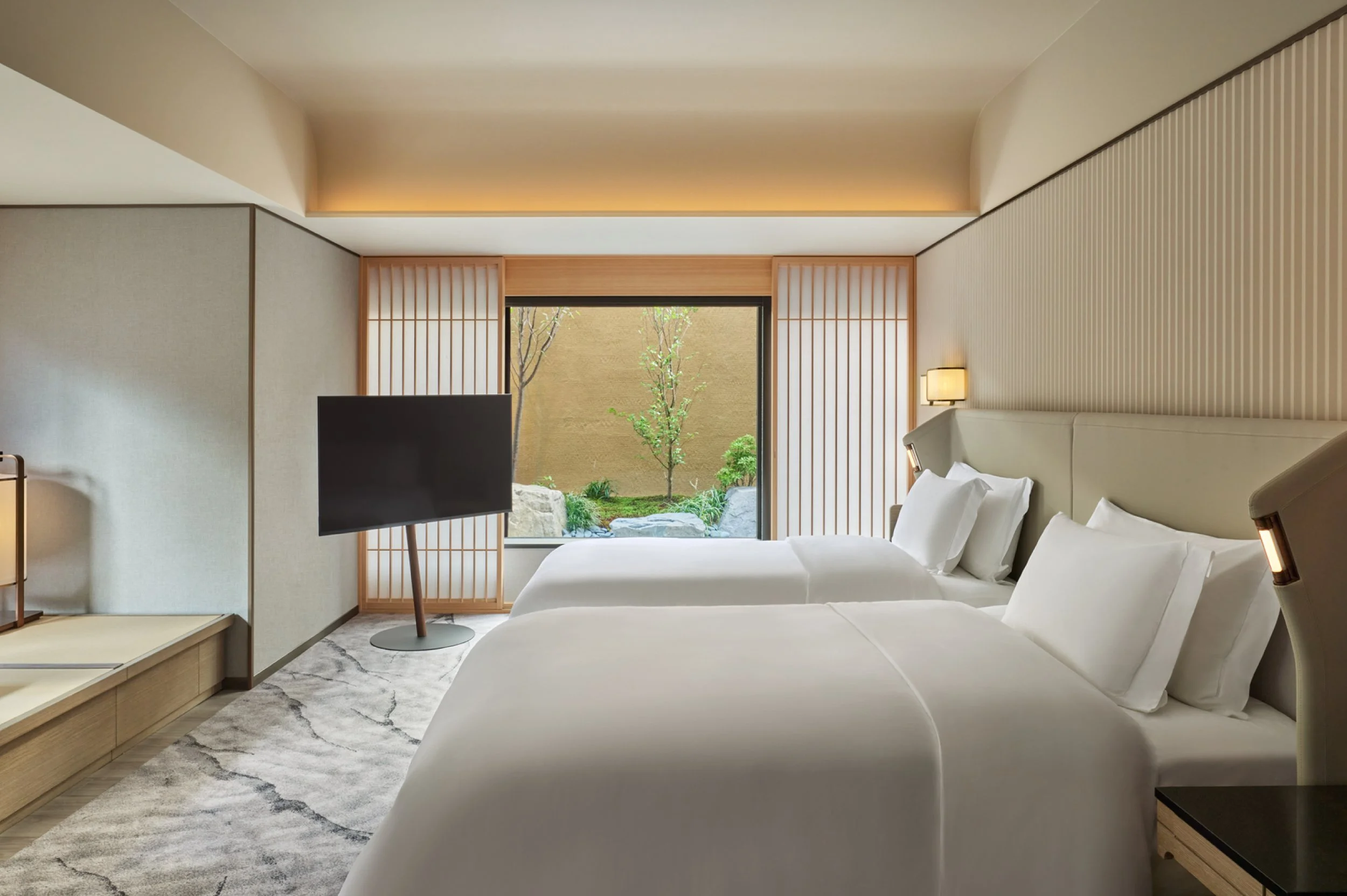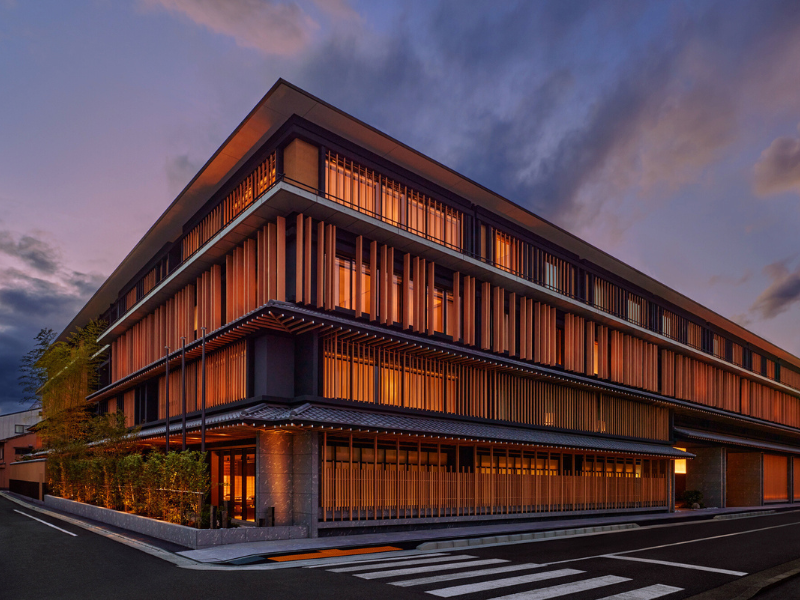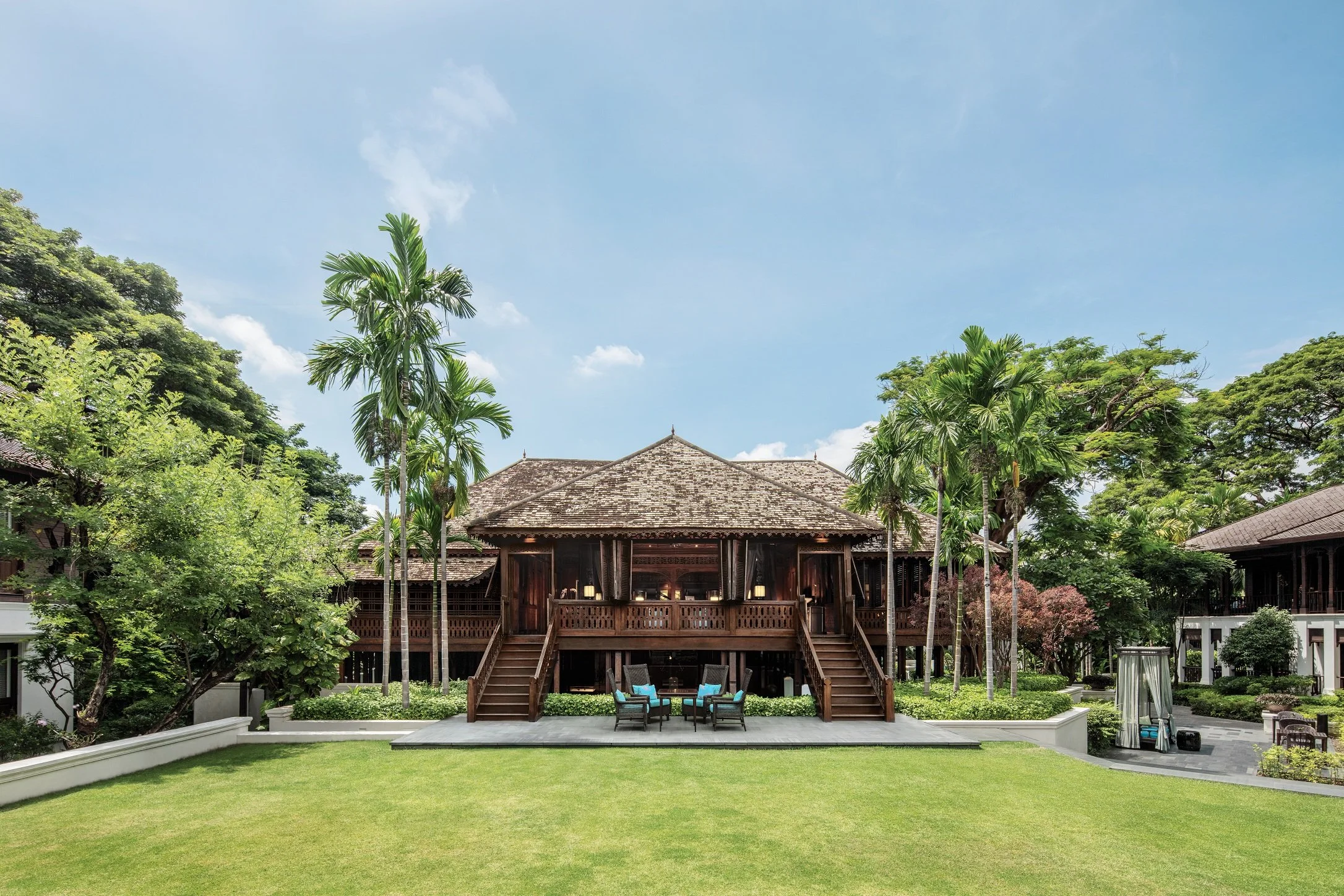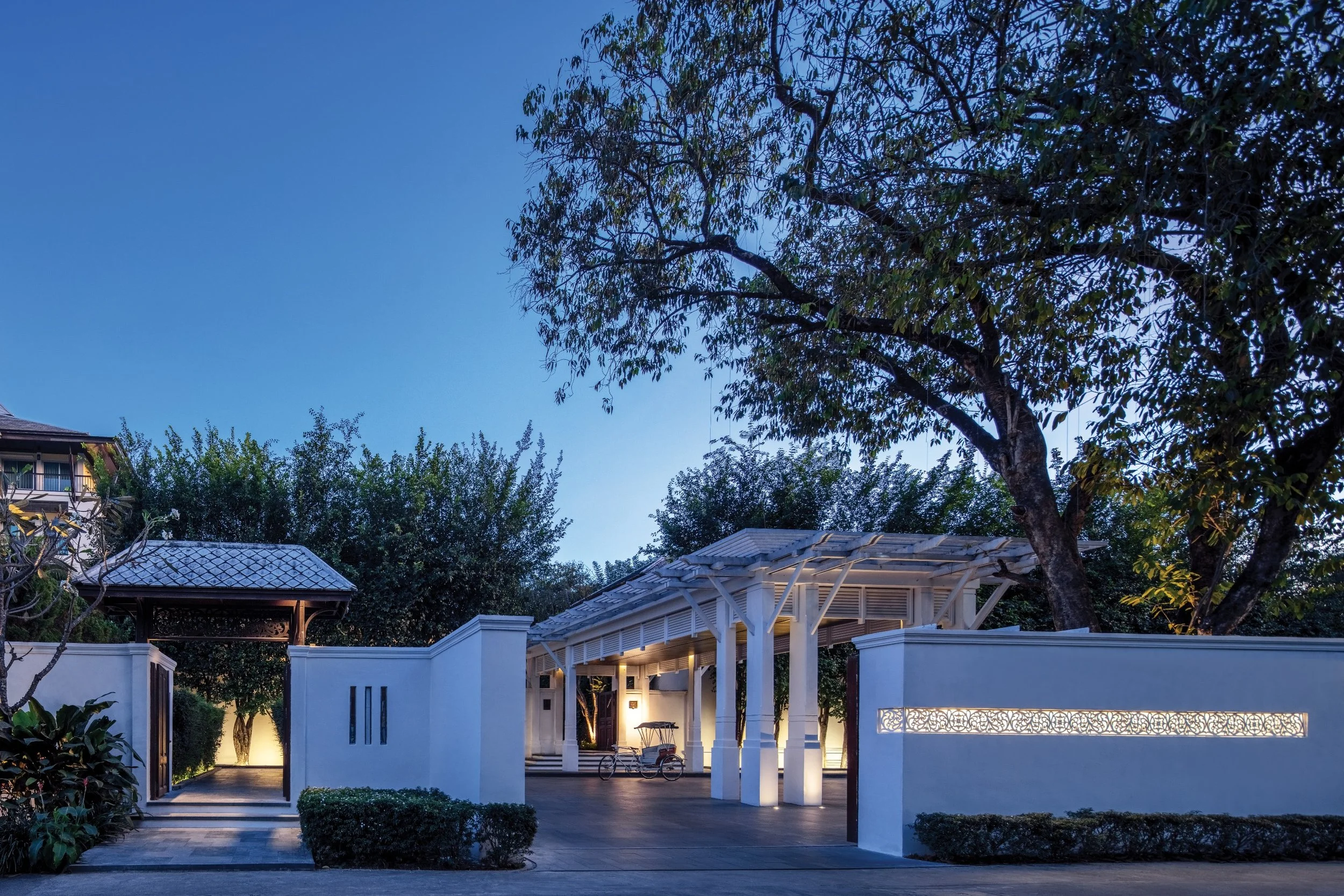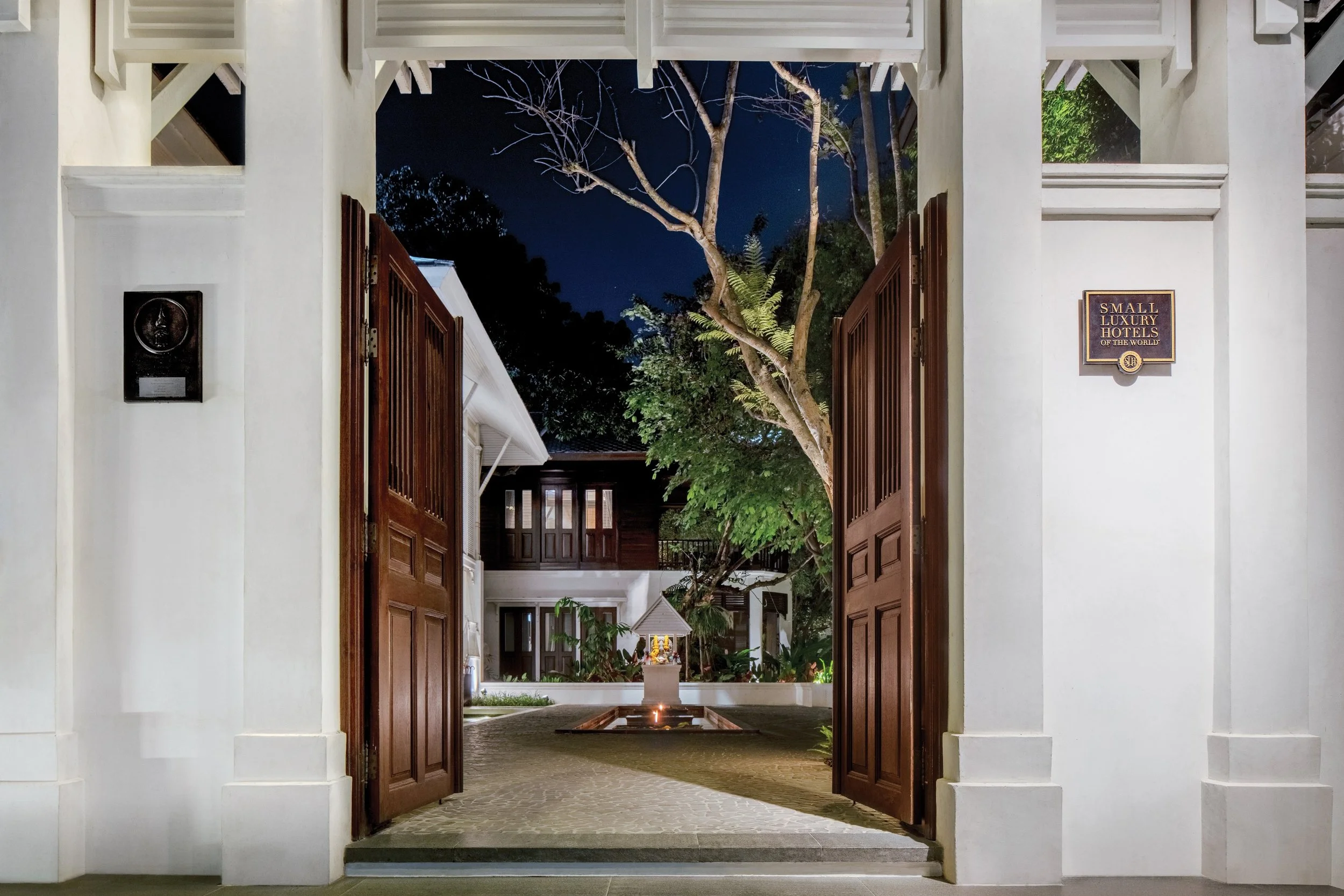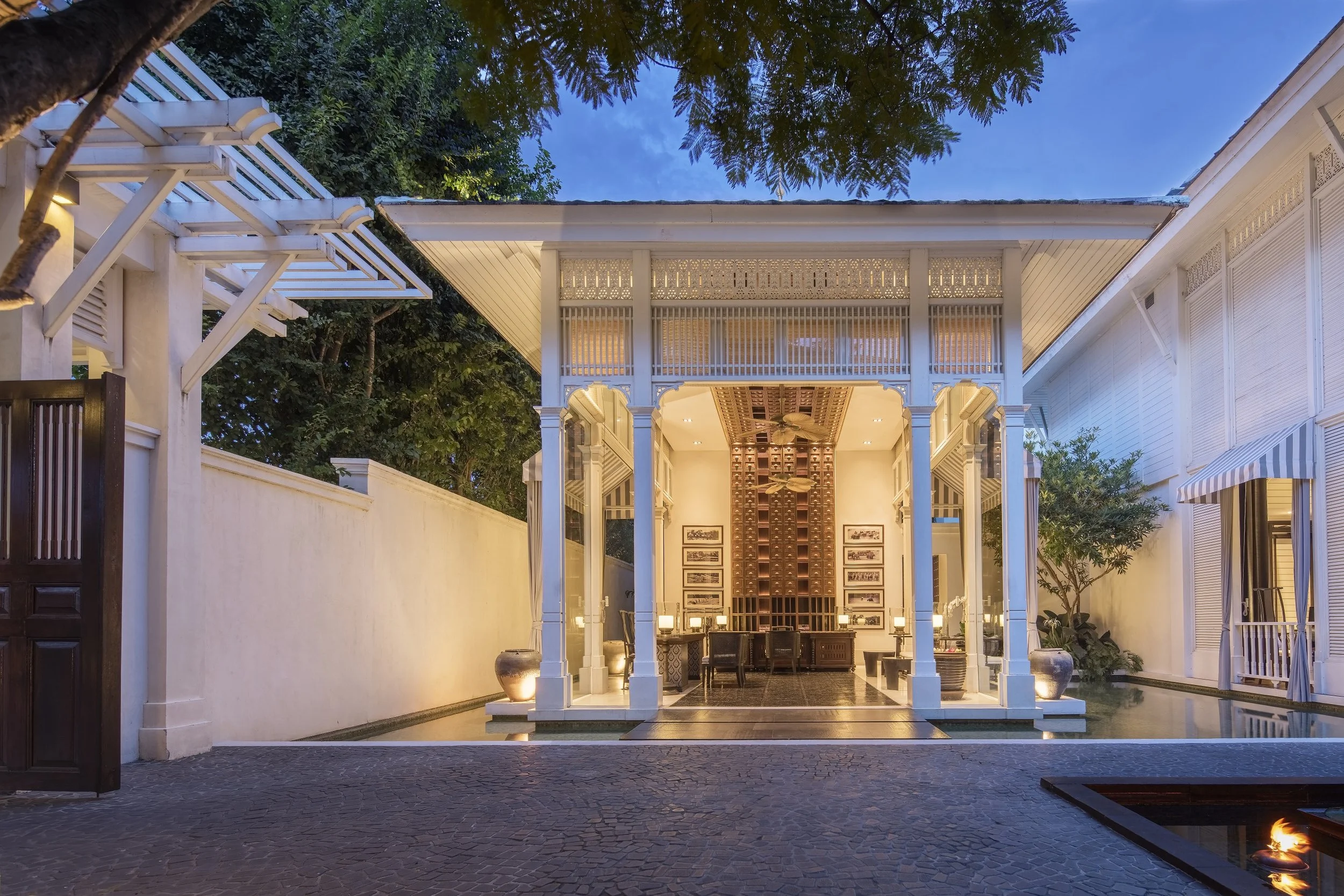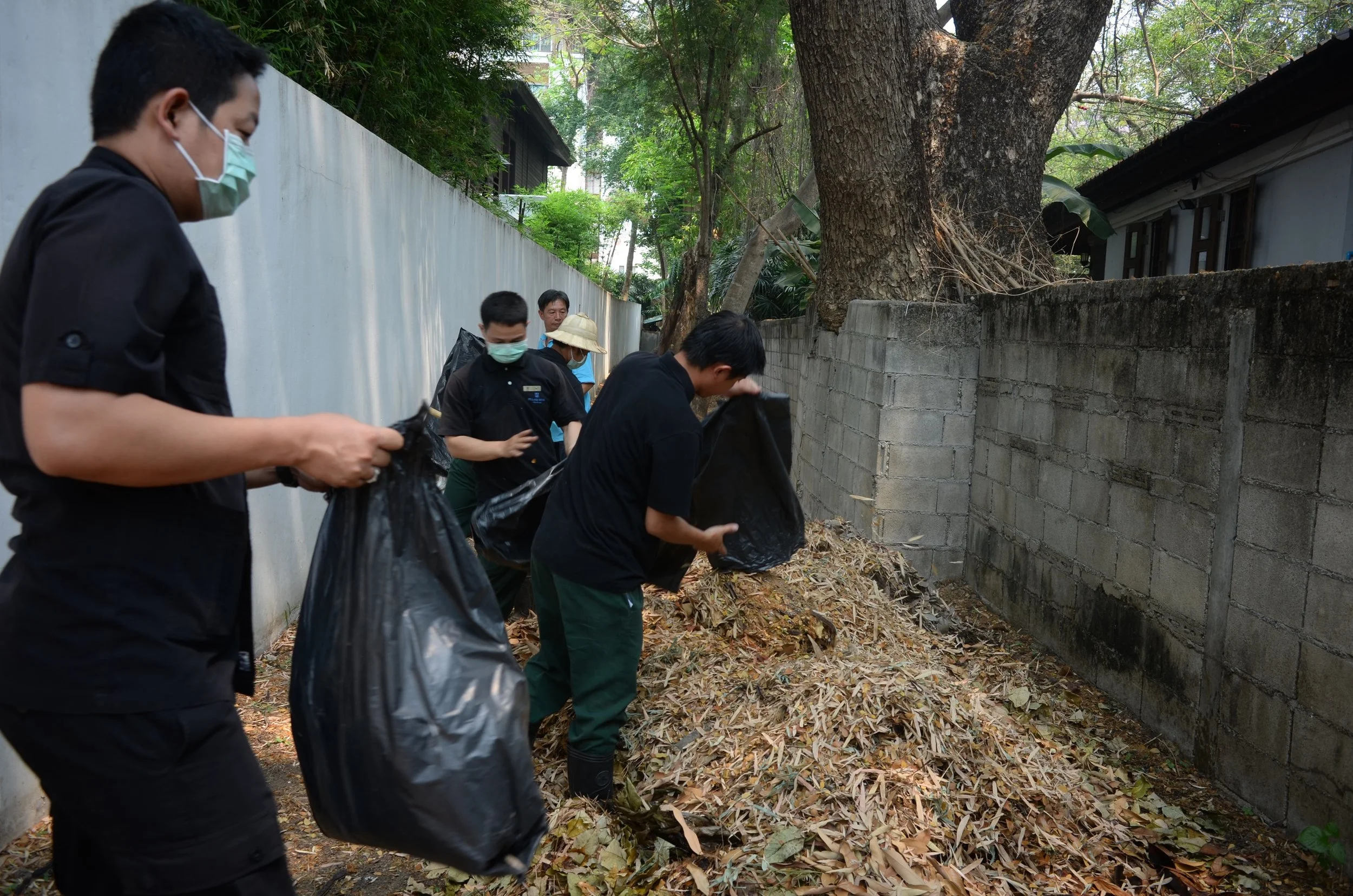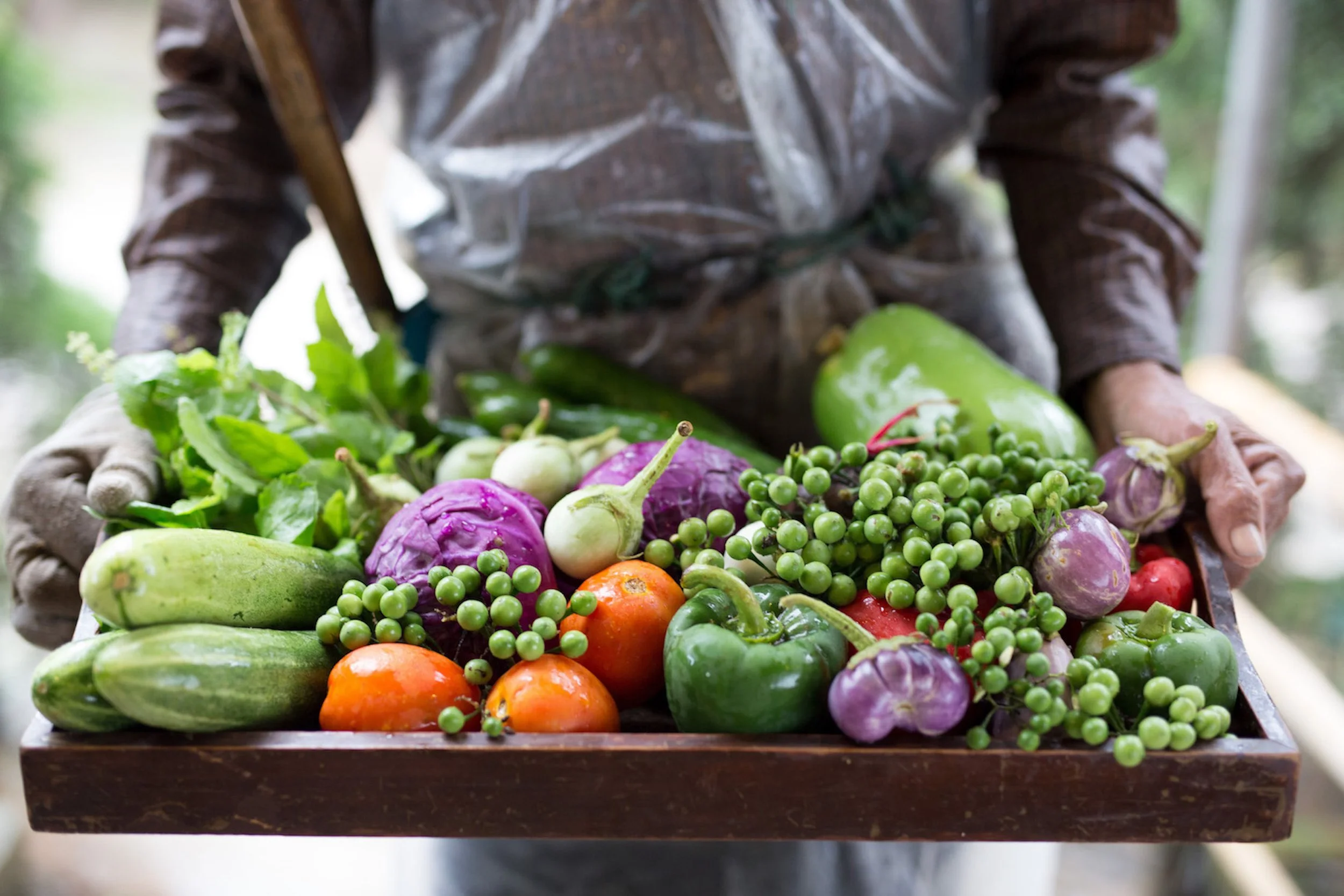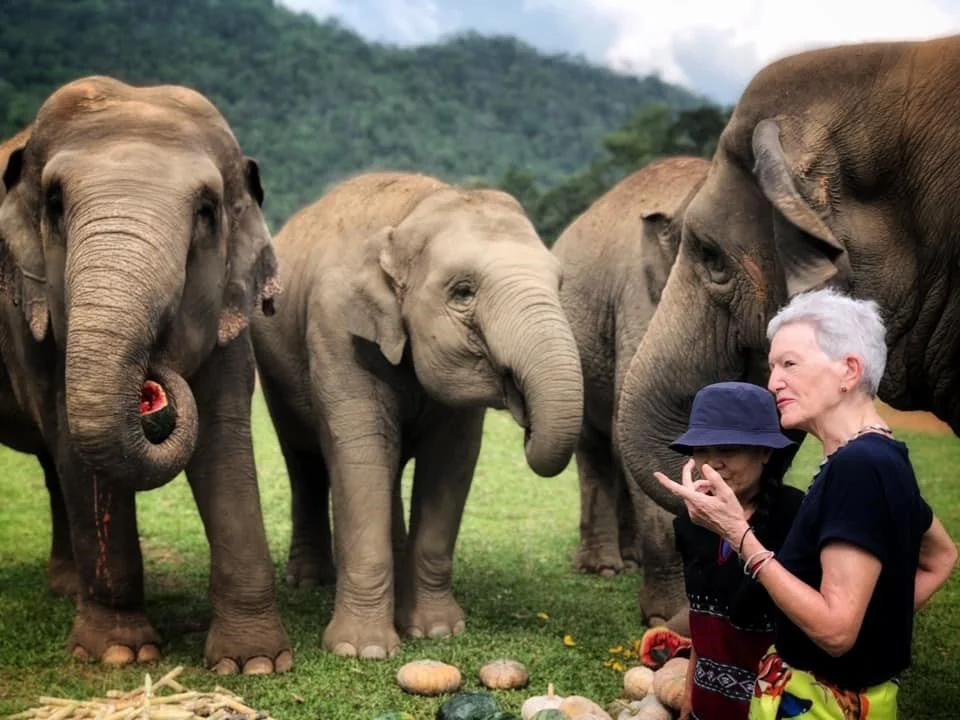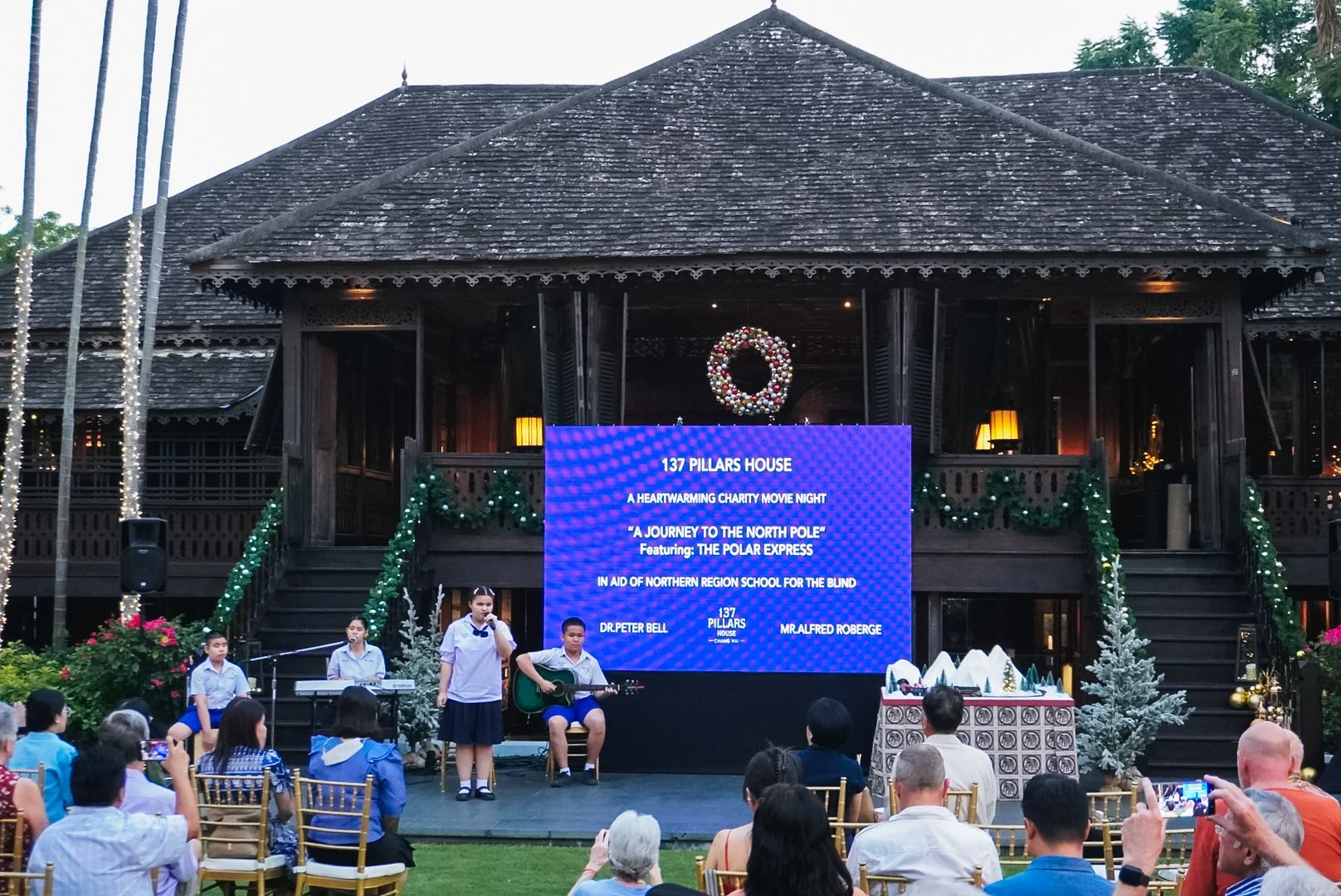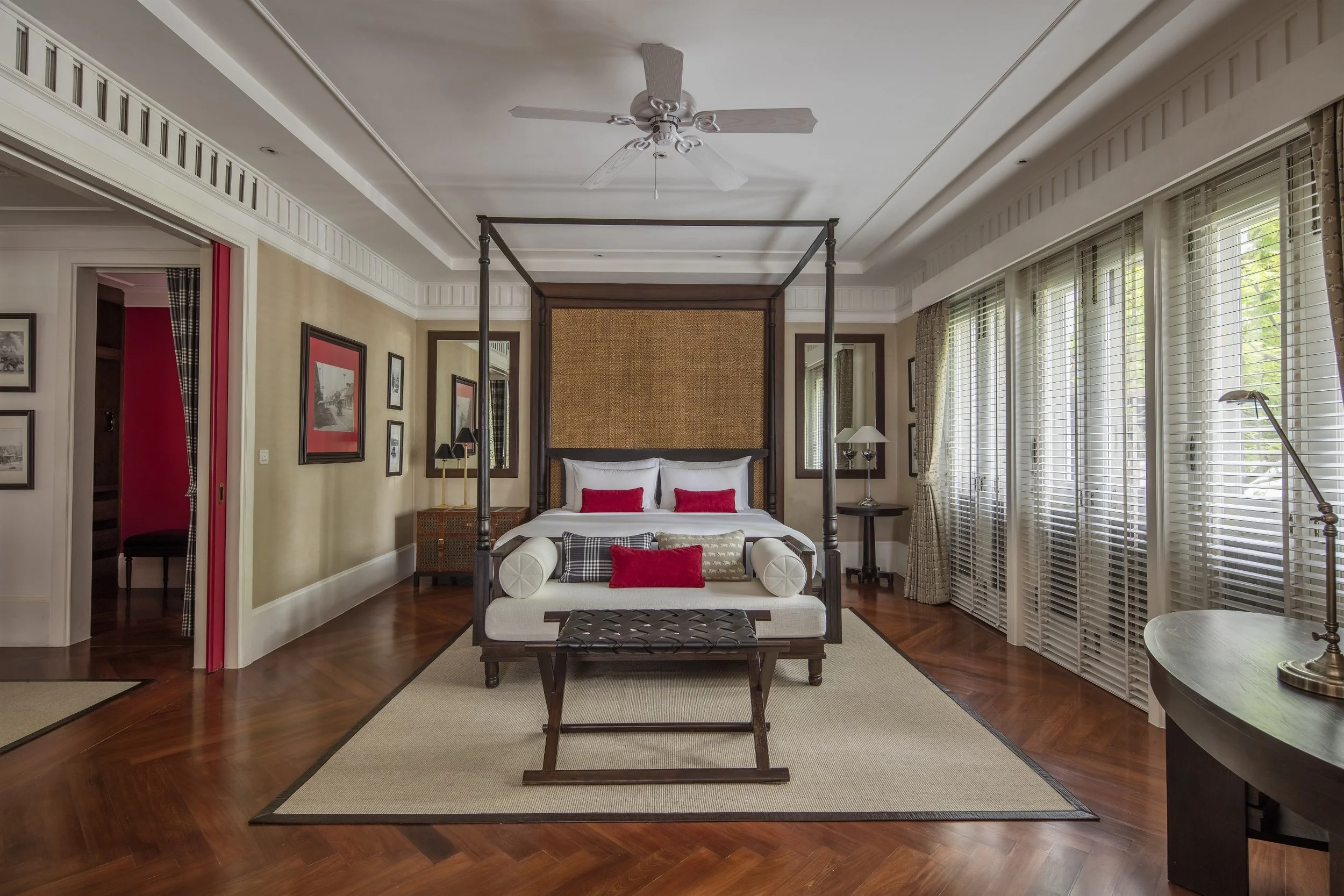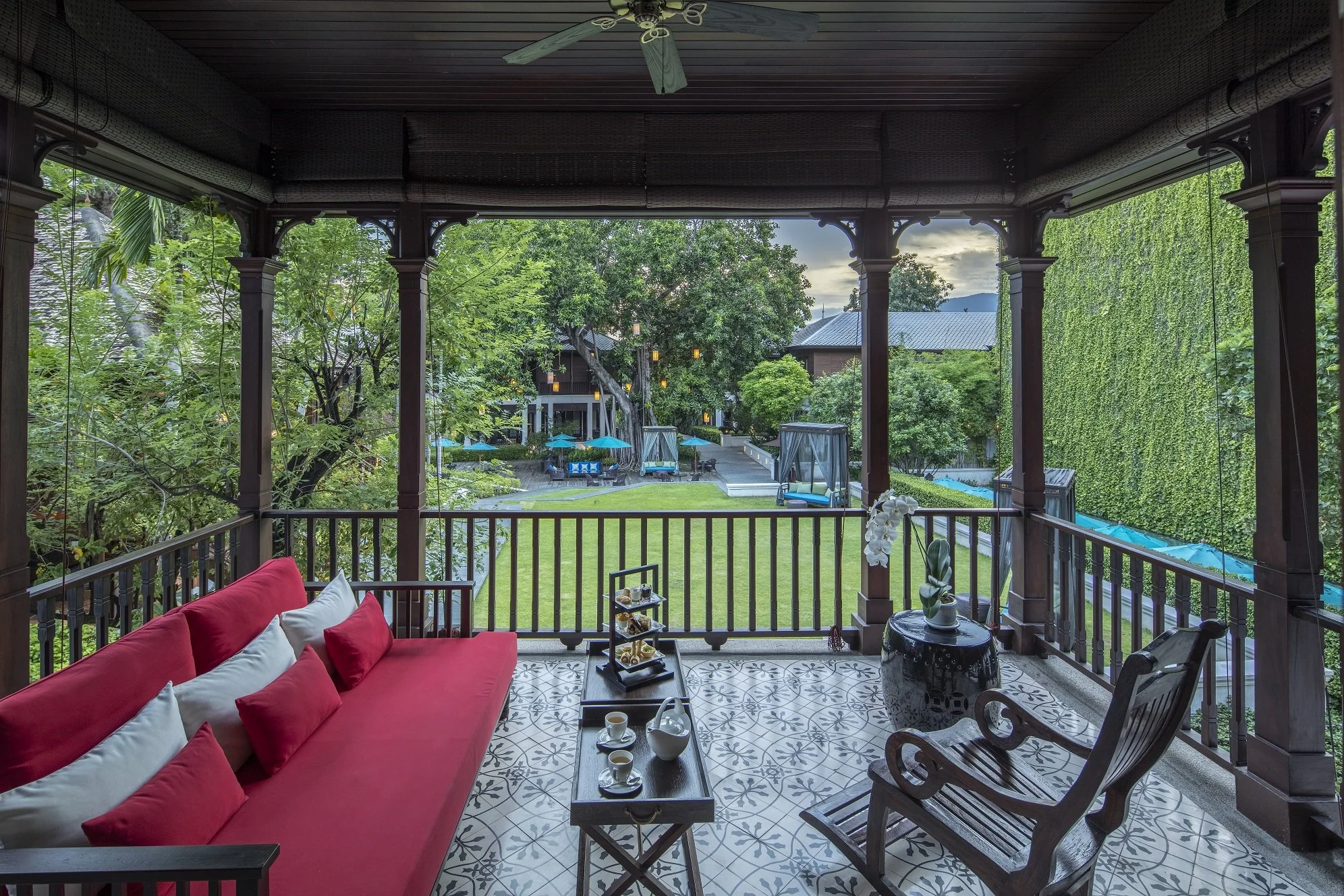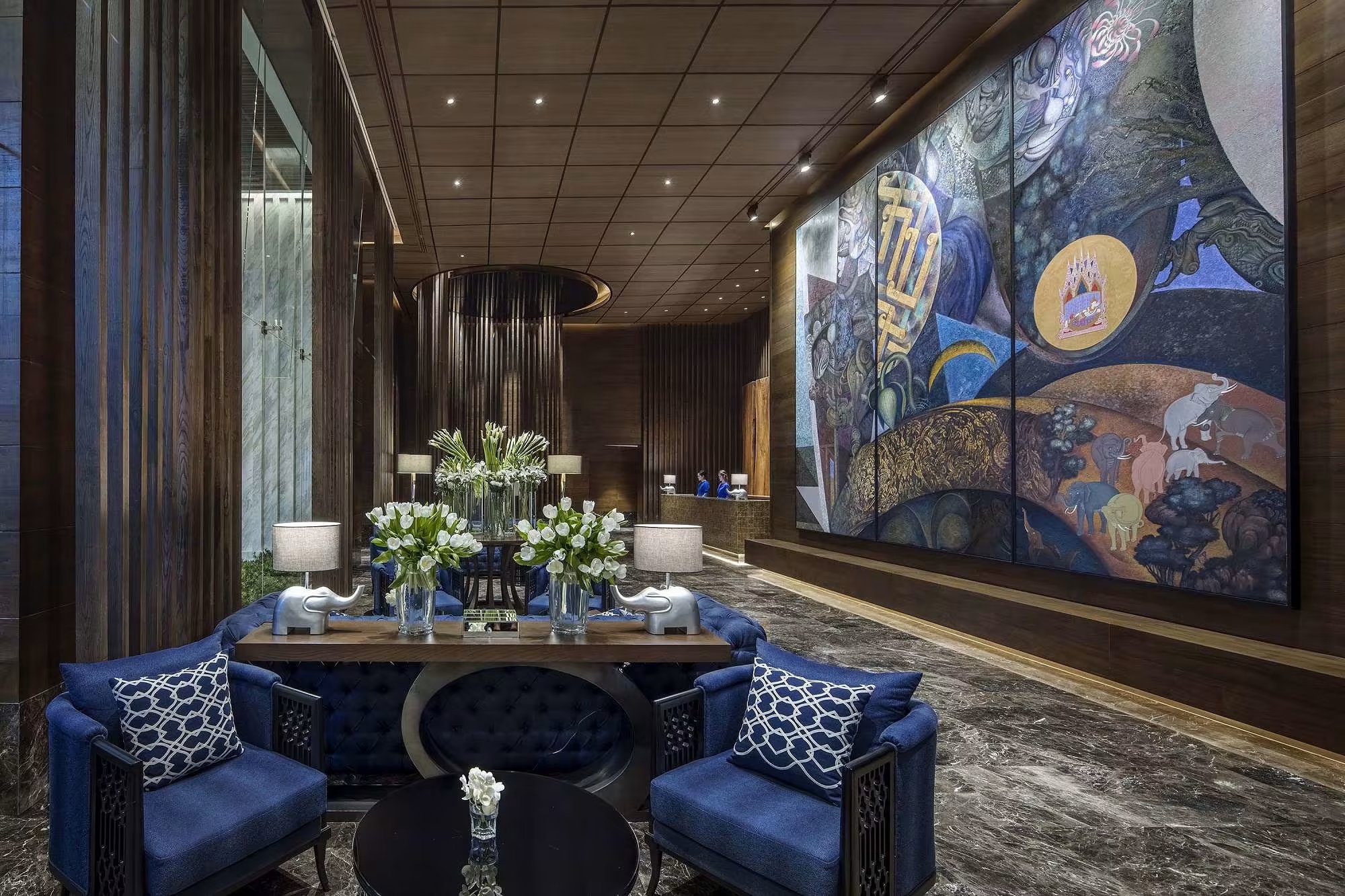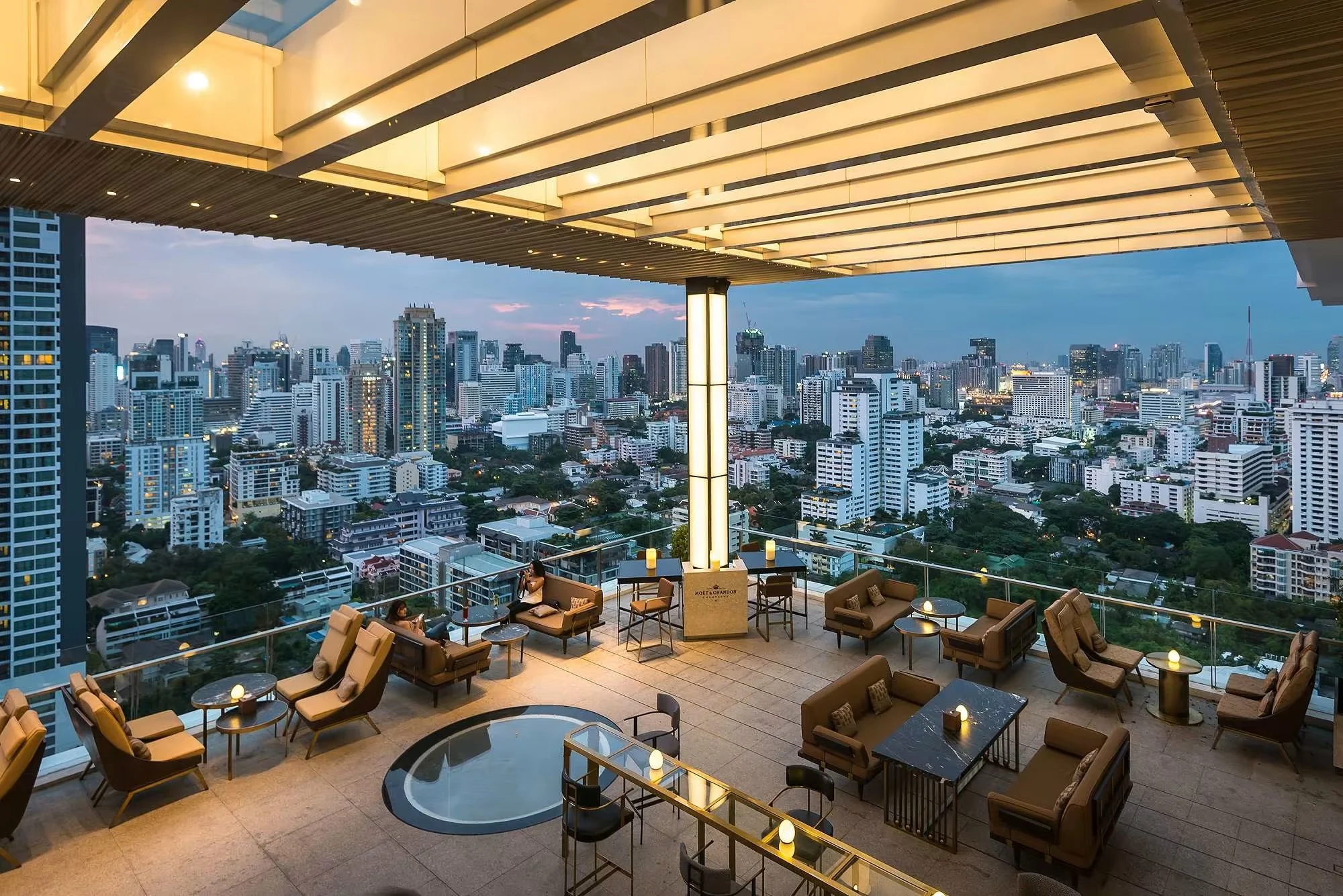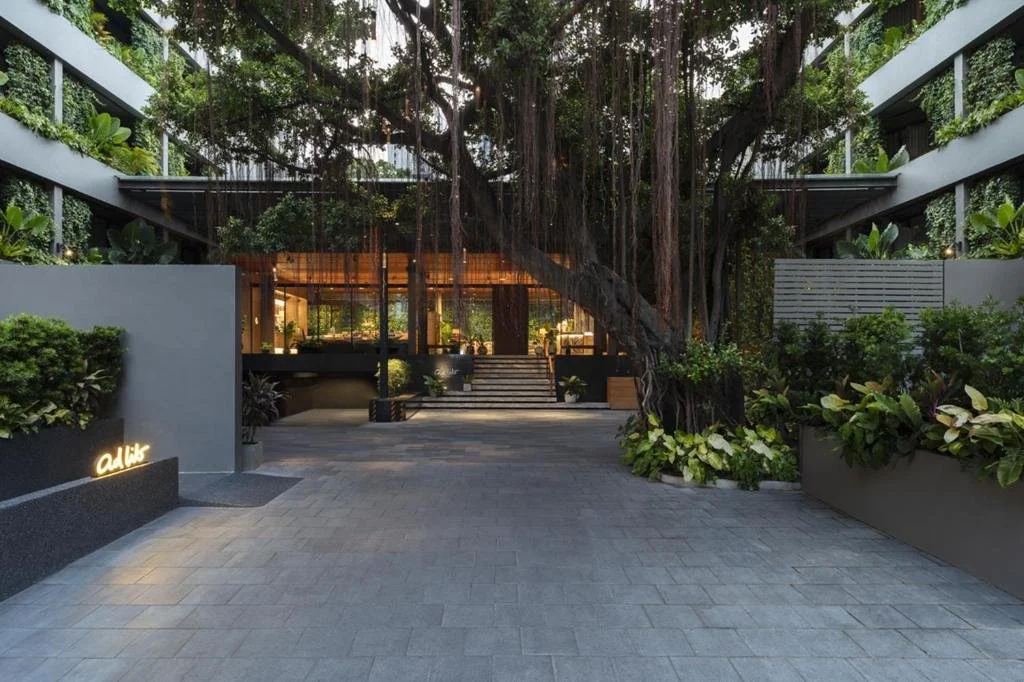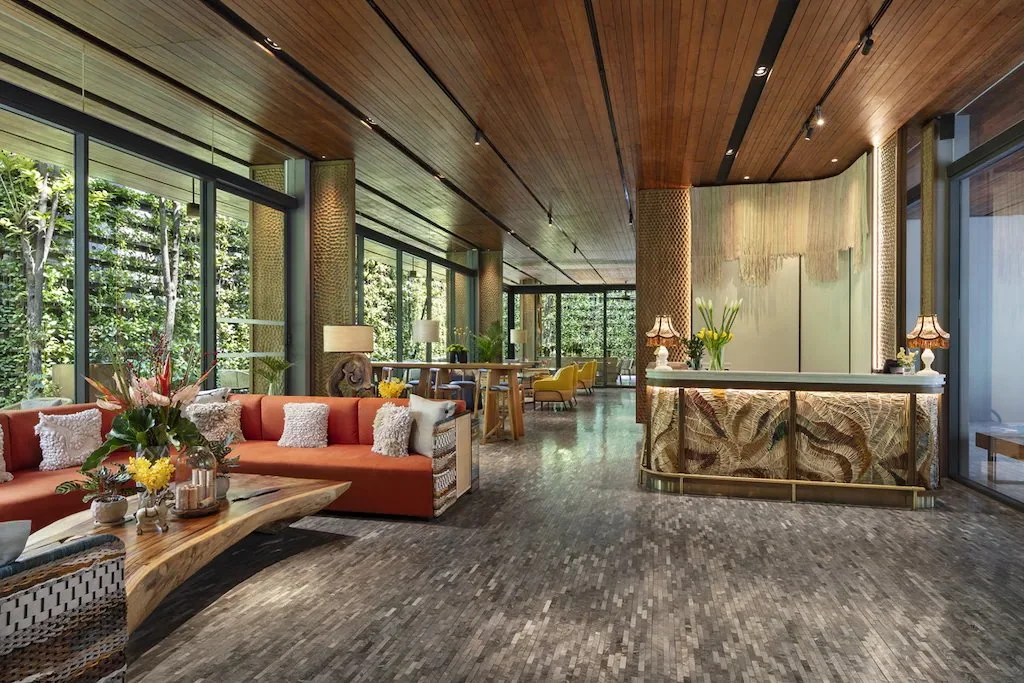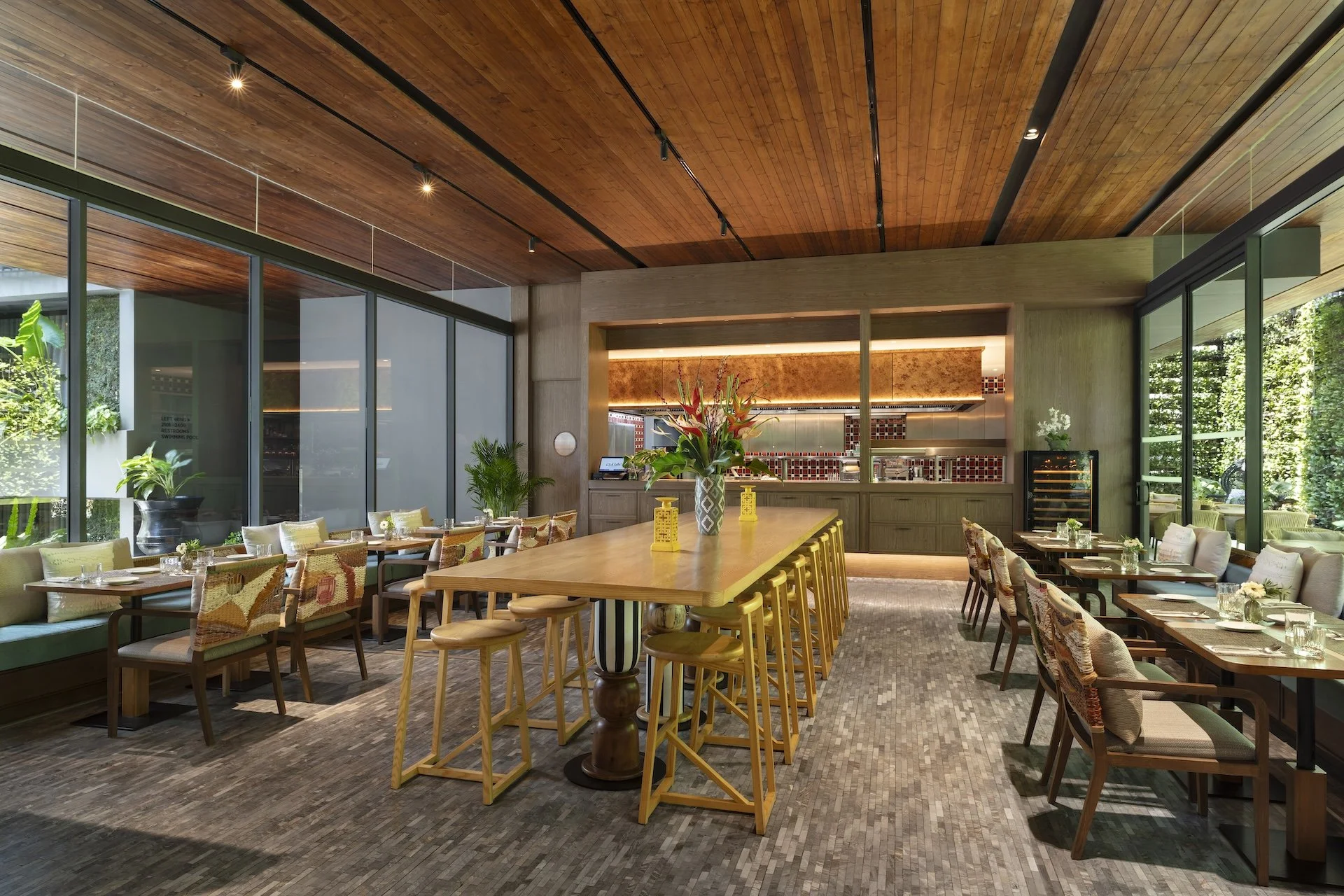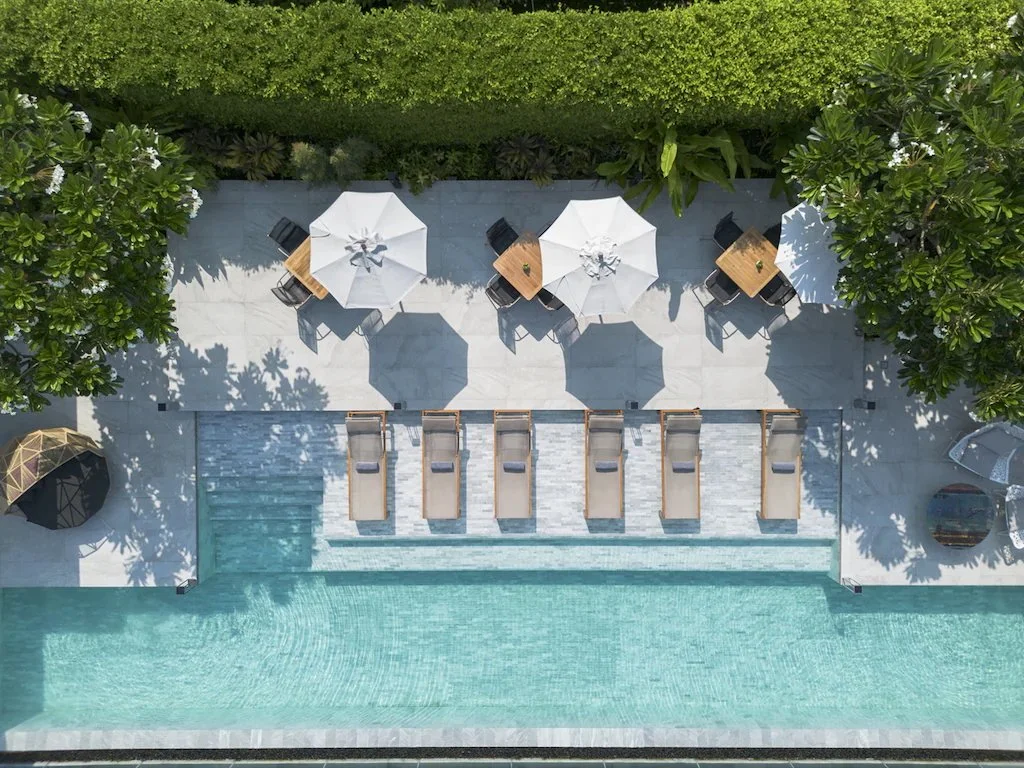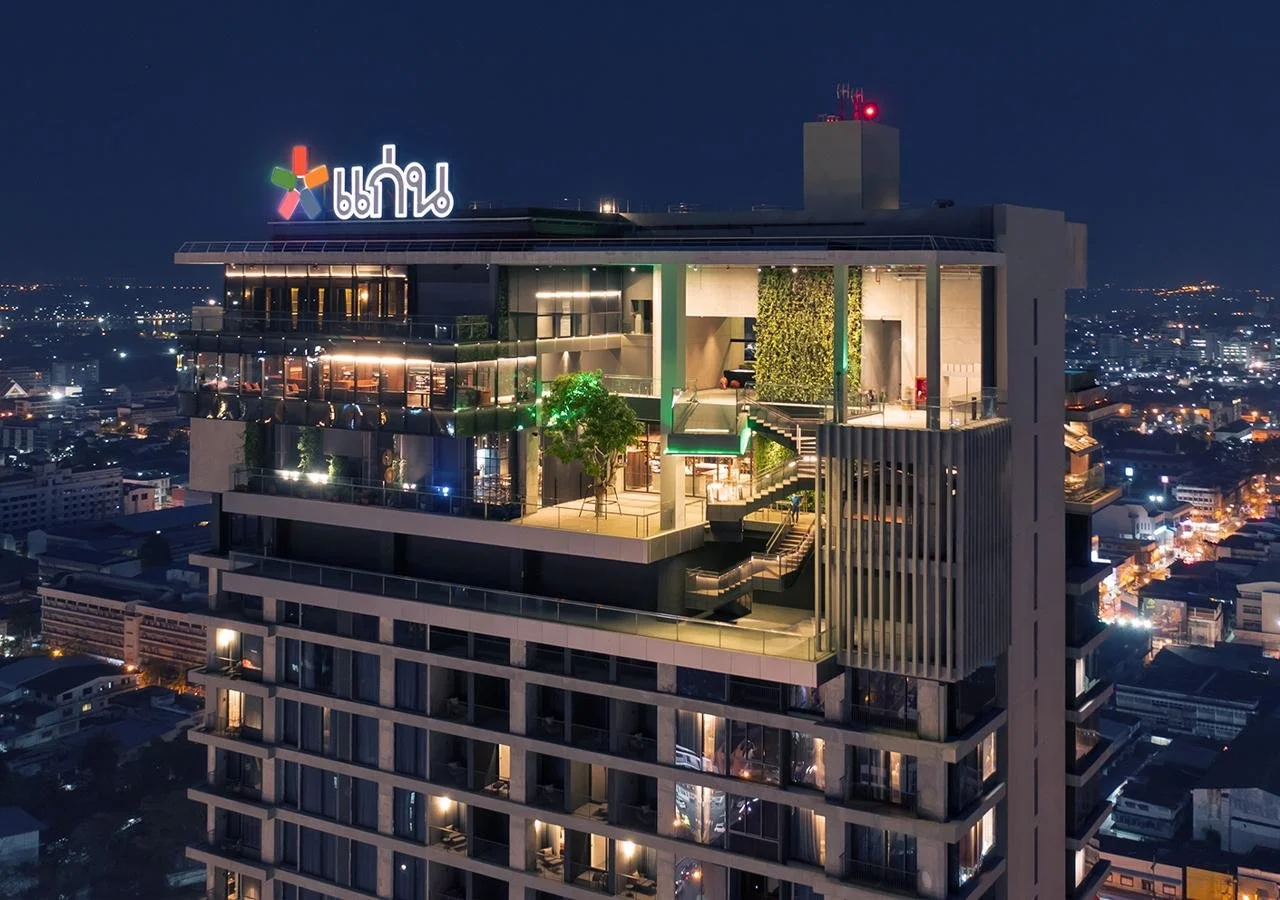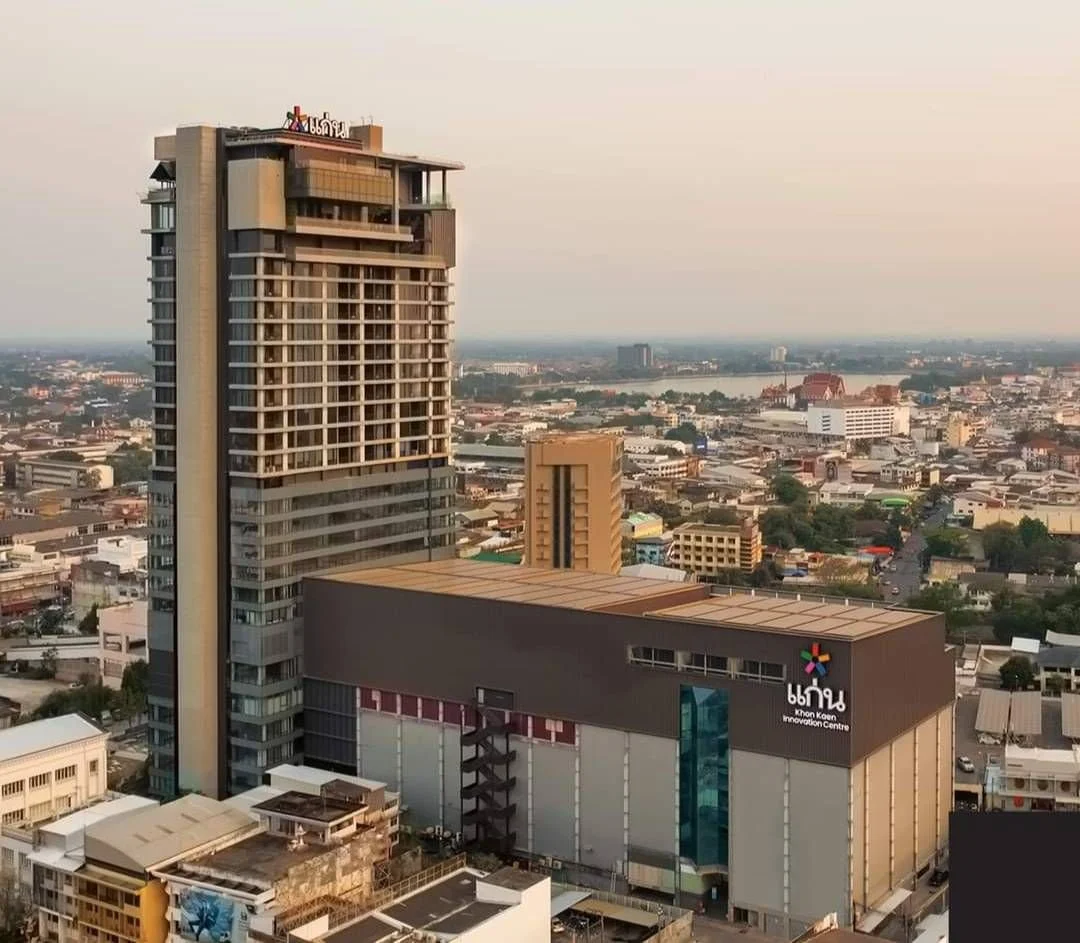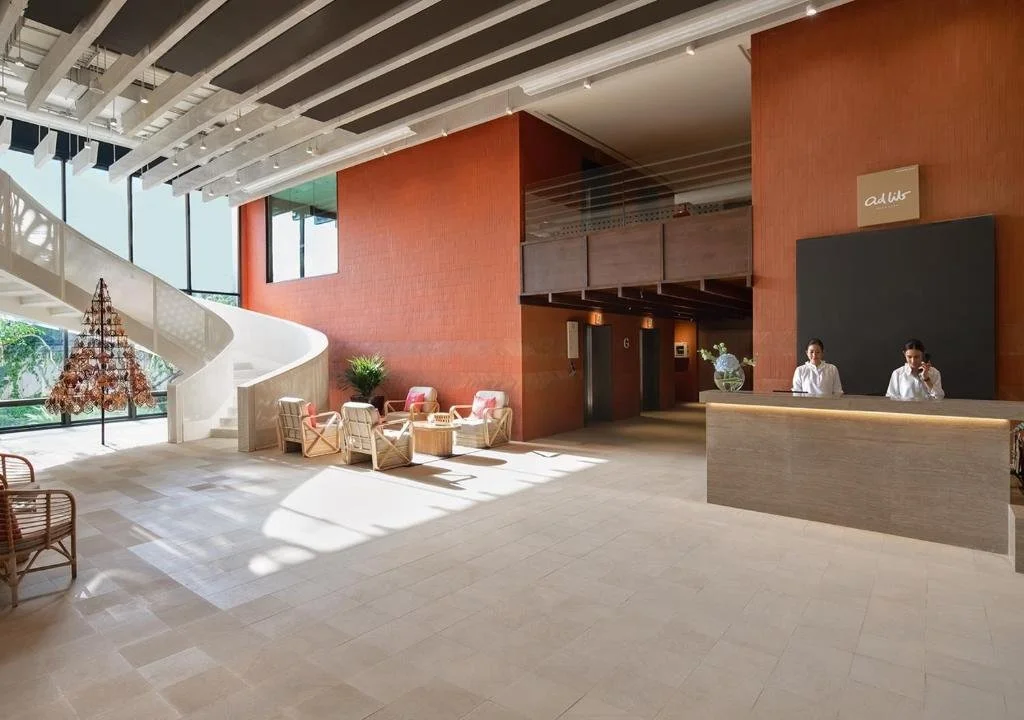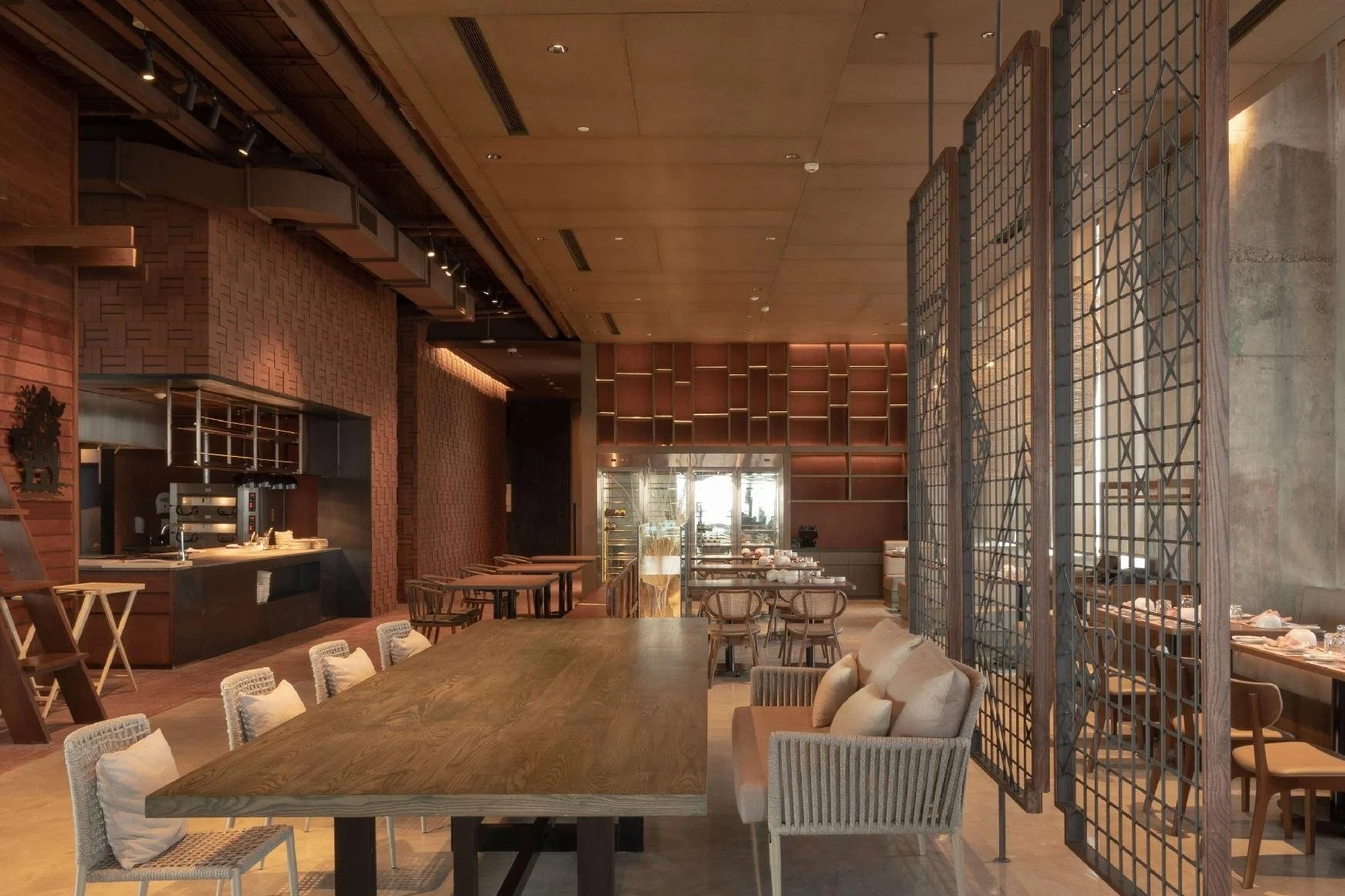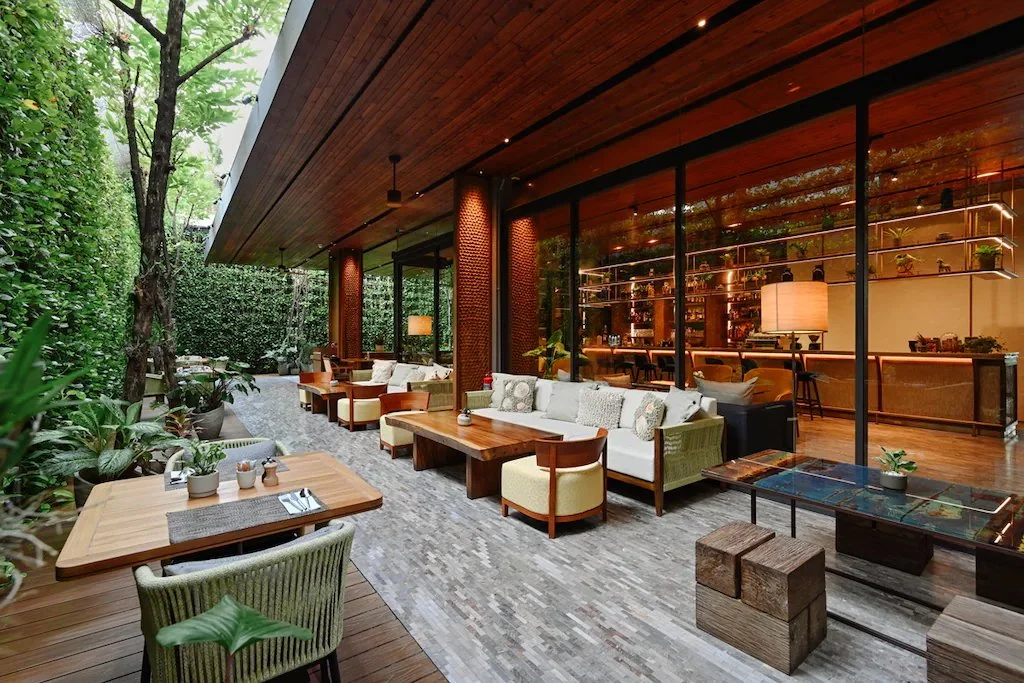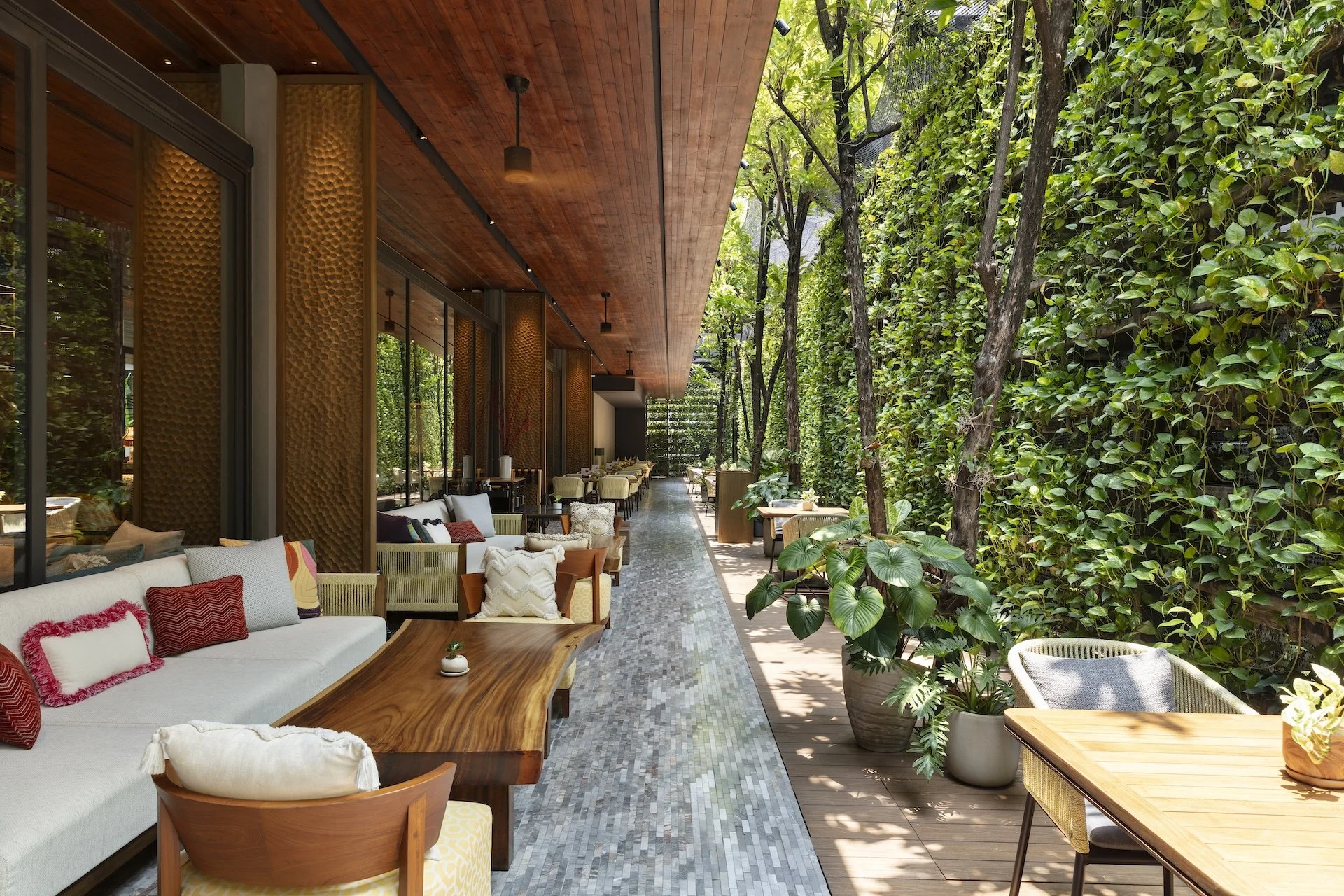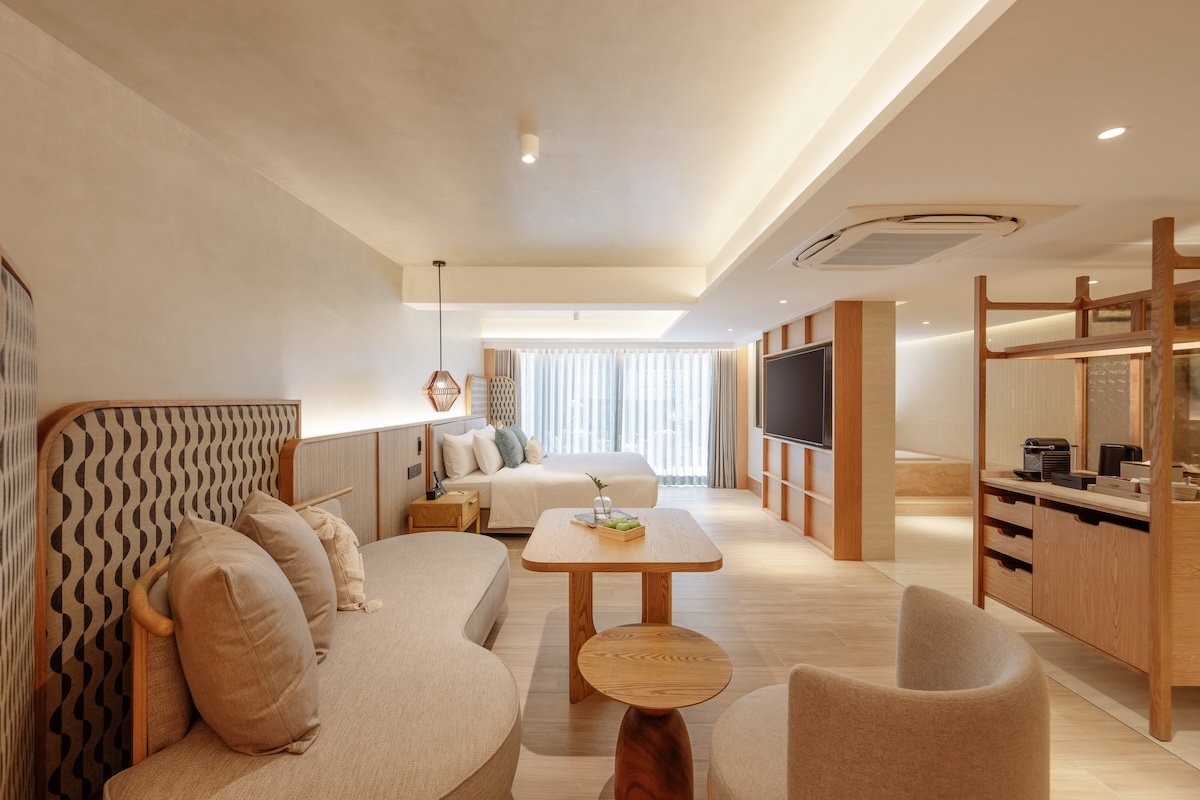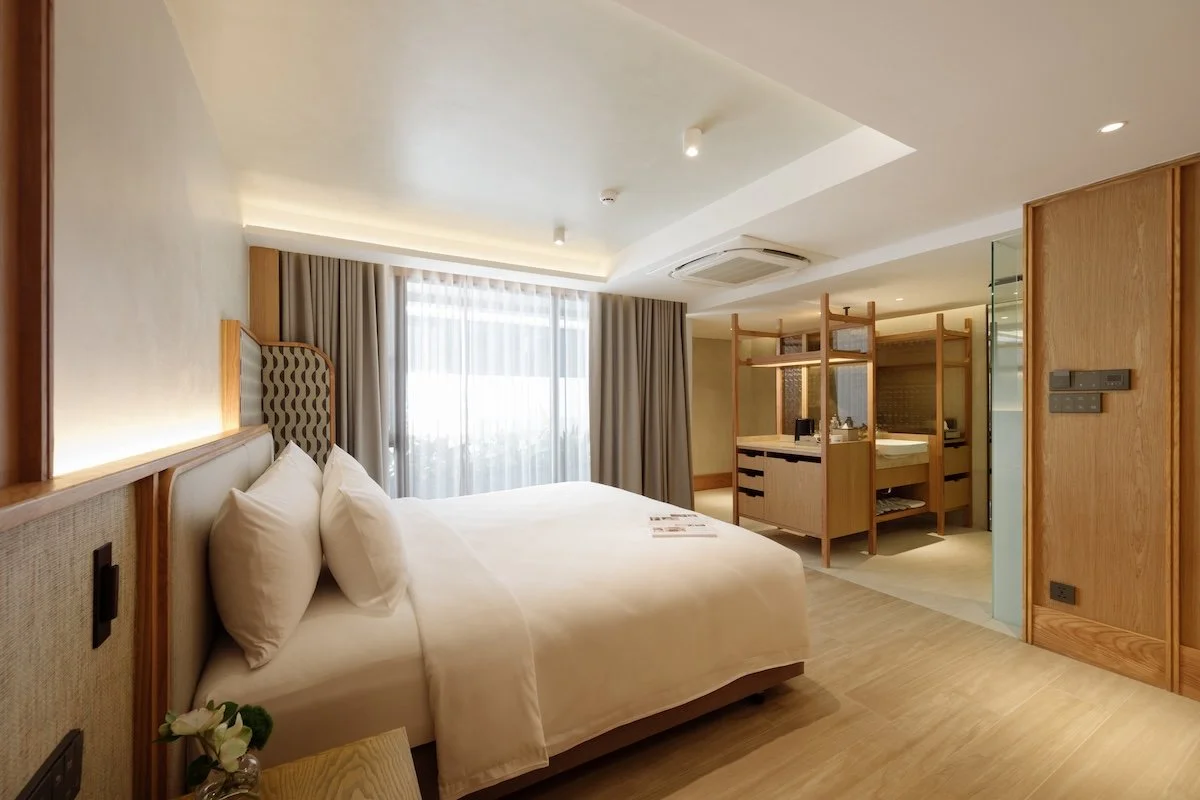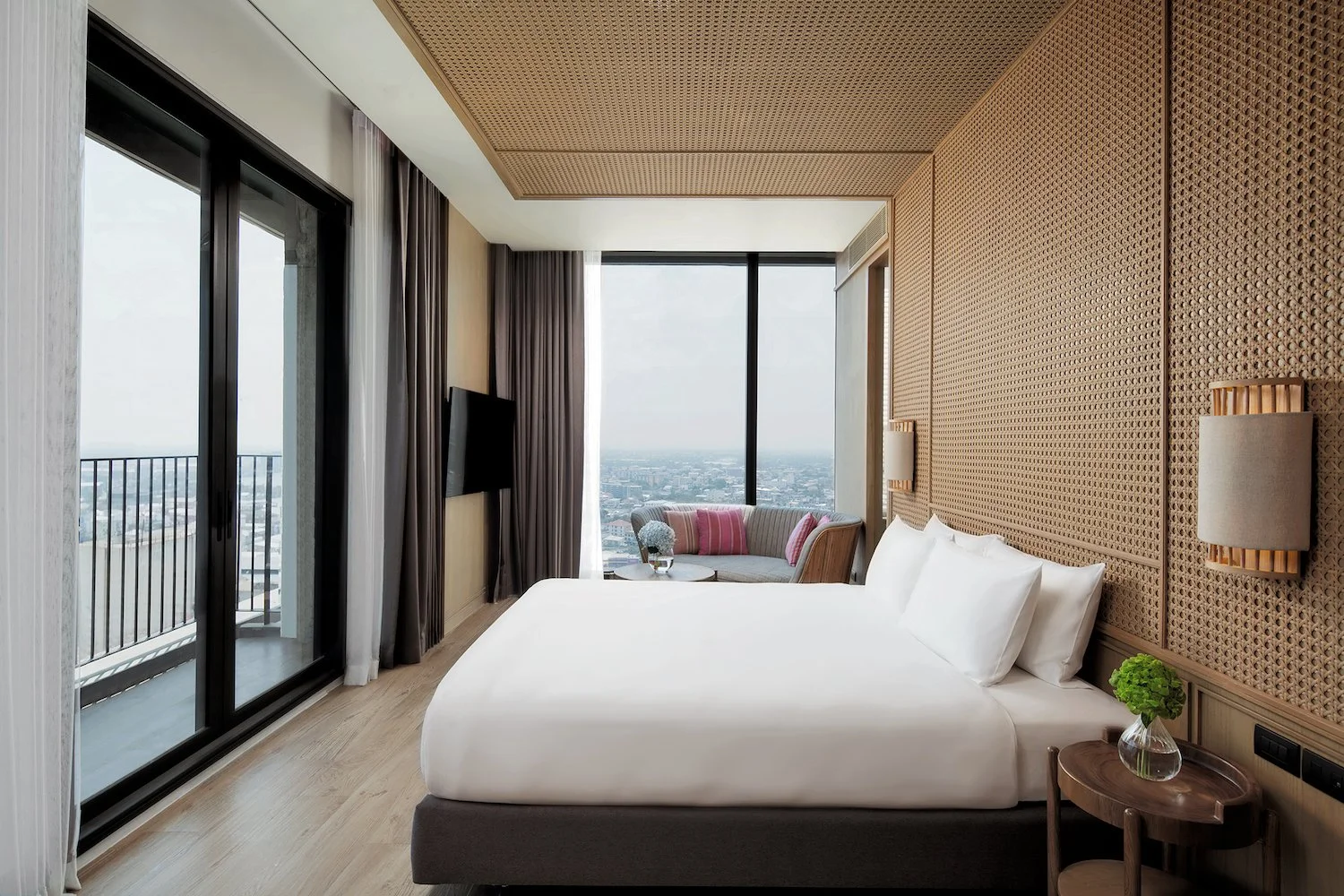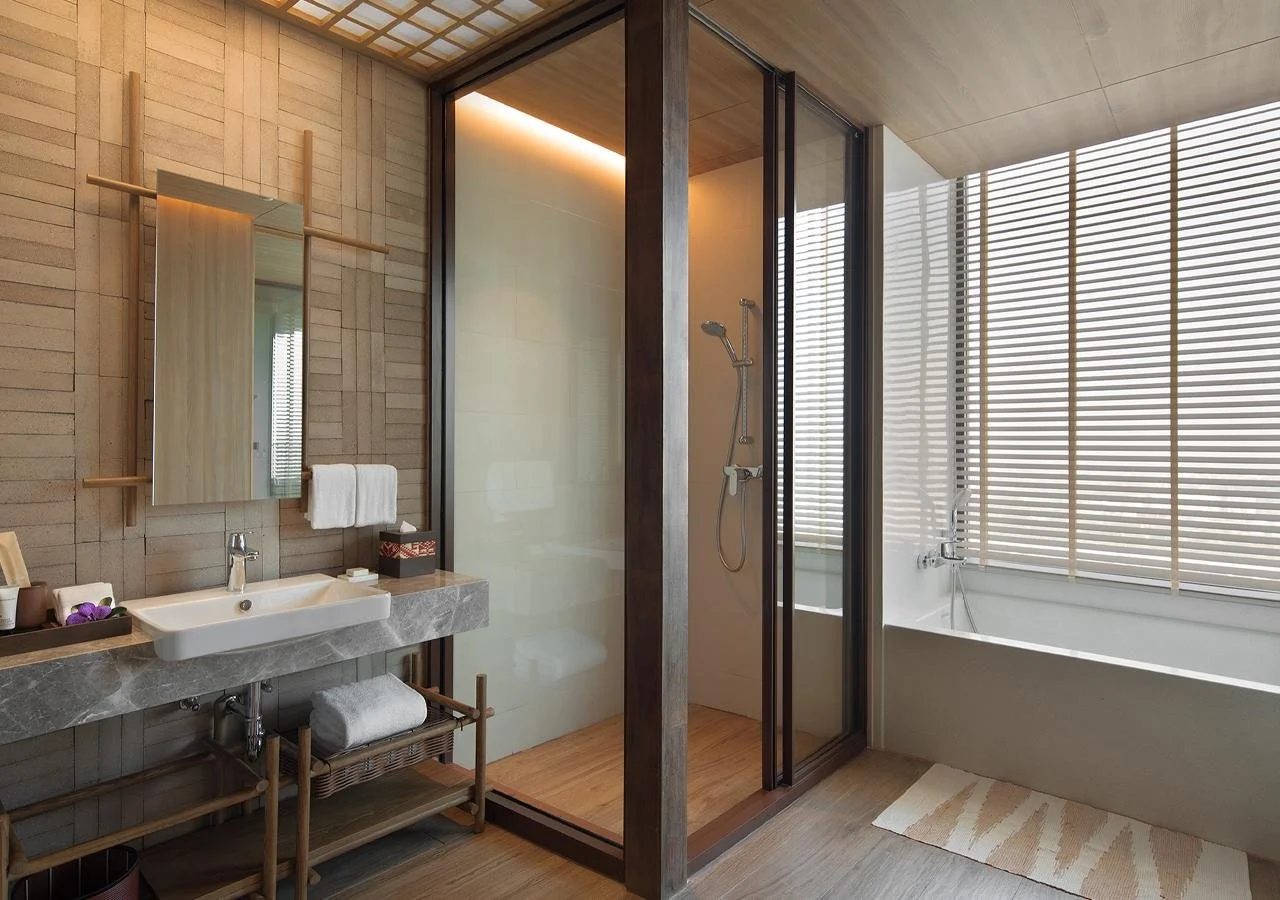Can Thai Hospitality Lead the Sustainability Wave Across Asia and Beyond?
Dusit Thani Bangkok. Photo by Dusit.
Thailand’s hospitality industry has long been celebrated for its signature warmth and unparalleled charm. Today, however, it stands on the cusp of an even greater transformation — moving beyond traditional service benchmarks to embrace and excel in the rapidly evolving sustainability movement.
This shift is not merely about adaptation but about leading the way in redefining what responsible hospitality can achieve on a global scale.
The momentum is driven by an ideal environment: increasing consumer demand for environmentally conscious travel, cutting-edge eco-technologies, and a growing recognition that sustainability is no longer optional but essential.
Thai hospitality groups are leveraging this trifecta to redefine their roles—not just as service providers but as stewards of the environment and communities they call home.
From large players such as Dusit and Anantara to smaller companies including 137 Pillars and Ad Lib, these homegrown brands are poised to challenge the non-Thai giants in an area that matters more than ever: sustainability.
Could they be the sustainability leaders that the Land of Smiles and APAC need?
For the final part of the special series, Thailand’s Best-Kept Sustainable Travel Stories, we spoke with the leaders of three Thai brands: Dusit, Ad Lib, and 137 Pillars, to find out what the industry can learn from their sustainability journeys.
In case you missed the previous stories, check them out here.
Dusit’s Tree of Life: Redefining Sustainability in Global Hospitality
Dusit International, a distinguished hospitality brand with 75 years of heritage originating in Bangkok, has expanded into a global powerhouse with 57 hotels and resorts as well as 240 luxury villas across 19 countries, including China, Japan, the Maldives, and the United Arab Emirates.
While renowned for its luxury hotels and resorts, Dusit has also diversified into less-publicized yet equally vital businesses within its ecosystem: food, education, and property development.
At the heart of Dusit’s forward-looking vision lies its Tree of Life strategy, a 31-criteria framework designed to integrate environmental stewardship, societal impact, and long-term value creation across its hotels, food business, and educational ventures.
Dusit Thani Bangkok. Photos by Dusit.
Why Tree of Life Stands out
Unlike many industry initiatives, Dusit’s Tree of Life is not a standalone program but a deeply embedded philosophy across its operations.
According to Sirirat Pinrod, Group Assistant Director of Sustainability, the initiative is structured to empower individual properties with actionable tools and guidelines. “Our primary objective is to ensure this initiative takes root effectively at the property level,” she explains.
The Tree of Life Awards honor properties that excel in sustainable practices, while rigorous evaluations ensure every property stays aligned with the company’s ambitious goals.
At the foundation, Level 1 —comprising eight essential criteria —is a mandatory baseline for all Dusit properties. Meanwhile, achieving Level 4, the pinnacle of sustainability excellence, requires meeting an impressive 28 out of 31 criteria. This tiered system not only establishes clear benchmarks but also inspires a culture of continuous improvement and excellence.
This approach underscores Dusit’s commitment to balancing recognition with rigor, ensuring that sustainability is both celebrated and systematically ingrained across its operations.
From top left (clockwise): Rooftop Solar Panels at Dusit Thani Maldives, Crab Release at Dusit Thani Hua Hin, Dusit Water Project at ASAI Chinatown, Food Bank Visit by the Dusit Thani Lakeview Cairo team.
Actionable Takeaways
Responsible sourcing and procurement
Dusit incorporates waste management and responsible sourcing into its food and hospitality services. Hotels can emulate this by establishing partnerships with local farmers and suppliers and creating closed-loop systems to minimize waste and carbon footprints. A prime example of this effort is the Supplier Code of Conduct that Dusit issued last year to establish ethical governance, requiring its partners to declare a conflict of interest and disavow forced labor.
Holistic Staff Engagement
For Dusit, the most notable impact has been a heightened understanding of sustainability among staff and stakeholders. “People are the most important part of driving change,” Sirirat emphasizes. The initial years focus on qualitative success, with plans to introduce quantitative performance measurements as the program matures.
Measure and Communicate Impact
Dusit uses a project management tool as a progress tracking tool and audit checklist. . The company has established foundational infrastructure, including the Tree of Life Library, to provide access to tools, webinar recordings, and educational materials to bolster awareness and engagement across all levels of the organization.
Sirirat indicated Dusit intends to seek an international sustainability certification in the near future.
From left: ASAI Bangkok Chinatown, Dusit Thani Maldives.
Challenges Ahead
Sirirat acknowledges that implementing the Tree of Life initiative likely faces challenges, particularly navigating complex local regulations and working through various property ownership models, brand-owned, managed, and franchised hotels.
One thing that she was certain about when we spoke was the commitment and support from the top executive leadership to make the initiative a success.
Regional and Industry Significance
While it remains too early to assess the empirical impact of the Tree of Life initiative and Dusit’s overall sustainability strategy, the brand’s successes and challenges will offer valuable insights for all hospitality players aiming to balance luxury with environmental sustainability and social responsibility. This could position Dusit as a potential catalyst for industry-wide transformation.
Dusit Thani Kyoto. Photo by Dusit.
137 Pillars and Ad Lib: Small yet Influential, Redefining the Scene
It’s undeniable that businesses of every size and industry have a role to play in shaping the new climate economy.
While large corporations often dominate the conversation, smaller hospitality brands are also driving impactful progress toward sustainability.
Take 137 Pillars and Ad Lib as examples. Both are family-run Thai-owned brands with just two properties each, but that’s where the similarities end. Each is charting its own unique sustainability path, realizing its own ambition, and uncovering different growth opportunities in Thailand.
These two different stories highlight a powerful truth: the sustainability journey is not one-size-fits-all. For industry professionals, the contrast offers a goldmine of actionable insights, proving that impactful strategies come in many forms, and must be tailored to location, scale, and mission.
137 Pillars: Preserving Cultural and Natural Heritage for the Future Generations
In the minds of discerning travelers, the 137 Pillars brand evokes an image of historic Thailand, steeped in the heritage of the 1800s. This connection is rooted in the brand’s name, derived from the 137 teakwood pillars that formed the foundation of the main house at the Chiang Mai property, once the headquarters of the Borneo Trading Company.
Today, this legacy is matched by a forward-looking vision, championed by two trailblazing leaders: Anne Arrowsmith, General Manager of 137 Pillars House Chiang Mai, and Nida Wongphanlert, Managing Owner of 137 Pillars Hotels & Resorts.
137 Pillars House Chiang Mai. Photos by: 137 Pillars
Pioneering Sustainability Practices in Chiang Mai
At 137 Pillars House Chiang Mai, sustainability is not an afterthought. It is woven into the property’s operations. Under Anne Arrowsmith’s stewardship, the hotel has implemented important and robust sustainability practices such as:
Transforming organic waste into biochar, reducing landfill contributions while enriching soil health.
Plastic-free laundry services, eliminating single-use plastics from critical guest touchpoints.
Sourcing from local suppliers using reusable packaging, minimizing transportation emissions and waste.
Anne emphasizes, “Our team constantly seeks new solutions to refine and elevate our impact.”
Turning waste into biochar, and local food fourcing. Photos by 137 Pillars.
Elevating Communities and Protecting Heritage
The brand’s impact reverberates via its many community upliftment and environmental protection initiatives. Highlights include:
Supporting ethical elephant conservation through a partnership with Elephant Nature Park, led by renowned conservationist K. Lek.
Providing scholarships for underserved students via The Foundation for the Education of Rural Children (FERC).
Preserving cultural heritage through contributions to Wat Ket Temple and the curation of the 137 Pillars House Museum.
From left: Anne Arrowsmith, General Manager of 137 Pillars House Chiang Mai at Elephant Nature Park; and Event for School for the Blinds. Photos by 137 Pillars.
Aiming for Transparency
Nida Wongphanlert, representing the next generation of this family business, emphasizes the importance of credibility in sustainability efforts. She notes, “Our journey began with meeting the rigorous standards of Small Luxury Hotels’ Considerate Collection. Moving forward, we are pursuing additional globally recognized certifications to ensure we maintain transparency and avoid the pitfalls of greenwashing.”
She adds, “Equally critical is empowering our team with the knowledge and understanding of why these initiatives matter. This ensures consistent and genuine communication with our guests and partners.”
137 Pillars House Chiang Mai. Photos by 137 Pillars.
Sustainability as an Investment, Not a Cost
While some perceive sustainability as a financial burden, 137 Pillars approaches it as a long-term investment. “Not all initiatives yield immediate returns,” Nida acknowledges. “However, by prioritizing critical areas, we reduce resource consumption, enhance brand appeal, and cater to the growing demand for eco-conscious travel experiences.”
This philosophy positions 137 Pillars as a leader among boutique hotels, showcasing that luxury and sustainability are not mutually exclusive.
137 Pillars Suites and Residences Bangkok. Photos by 137 Pillars.
Ad Lib: Leveraging Responsible Tourism as A Catalyst for Equitable Economic Development
Under the leadership of its founder, Gavin Vongkusolkit, Ad Lib is a fine example of how hospitality and tourism can change the trajectory of a destination. With a forward-thinking approach to design, operations, and community engagement, Gavin is creating a hospitality model that aligns economic success with environmental stewardship and cultural authenticity.
Ad Lib Bangkok. Photos by Ad Lib.
Building Sustainability Through Renovations
Ad Lib is a boutique hotel brand that belongs to Heritage Estates, founded by Gavin. His other two businesses are artisan coffee shop Kuppadeli and serviced offices and event venues Glowfish.
What these brands for Heritage Estates all have in common is that they occupy renovated spaces. It was this idea that drove Gavin to convert a family home in the heart of Bangkok into the first Ad Lib property.
With years of working in his family business Erawan Group and Heritage Estates, Gavin realized sustainable construction is often more possible with new builds than renovating existing buildings.
When searching for a location to build the second Ad Lib property, Gavin was steadfast in building anew and in a destination that would benefit from having a hotel. Ad Lib Khon Kaen proved that his idea was right, his team was able to save 76,000 tons of concrete and 3,700 tons of steel through resource-efficient practices during the construction phase.
Ad Lib Khon Kaen. Photos by Ad Lib.
Aligning Profit with Purpose Balancing Vision with Realism
Gavin believes that sustainability must be financially viable. By leveraging his proven business acumen, through Ad Lib, Gavin has created a scalable model that balances purpose with profitability. His pragmatic philosophy could be a model for a new generation of entrepreneurs seeking to align impact with economic resilience.
Ad Lib Bangkok. Photos by Ad Lib.
Bringing creative heritage collaboration to a global audience
Ad Lib’s design philosophy merges contemporary aesthetics with authentic Thai craftsmanship. This approach celebrates Thailand’s creative heritage while fostering global recognition for its artisanal talent.
As Ad Lib evolves, its mission to create multi-generational, inclusive spaces positions it as a beacon of meaningful hospitality. By integrating diverse demographics and fostering community connections, Ad Lib brings modern Thai identity to a global audience.
Ad Lib Bangkok. Photos by Ad Lib.
Khon Kaen’s Place-Making: From Agricultural Hub to Regional Destination
In Khon Kaen, Gavin envisions transforming the region into a nexus for responsible tourism and innovation.
Gavin explains, “By building an Ad Lib property in Khon Kaen, we wanted to create a destination for travel and MICE in one of the poorest regions in Thailand. With agriculture being the largest economic sector, we knew we wanted to work with farmers in some capacity.”
When he set out with this vision, he faced internal resistance as he explains, “My chef wasn't too sure if they're going to get the same quantity and quality that he wants from local farmers.” But over time, his team was surprised at the quality of the goods delivered to them. They asked the farmers to produce more sophisticated things. “We essentially developed a market for them,” Gavin says.
Agriculture aside, Gavin also introduced the Khon Kaen Innovation Center as part of his bigger plan to transform Khon Kaen into a creative and technology hub of Thailand.
This plan includes making the Khon Kaen Innovation Center and Ad Lib the heart of an ecosystem that propels responsible tourism and MICE activities. His vision is to transform Khon Kaen into the next Mekong region’s Aspen or Davos – a destination where China, Vietnam, Laos, and Cambodia convene to make important and consequential policies together.
Gavin isn’t stopping there. He revealed to AST plans for an international hub in southern Thailand, aiming beyond regional boundaries.
Ad Lib Khon Kaen. Photos by Ad Lib.
TL; DR
Are Thailand’s hospitality groups primed to lead the sustainability movement in SE Asia and APAC?
The answer is a yes. A small number of them are showcasing remarkable dedication and achievements in their quest for running socially responsible and environmentally conscious businesses.
Dusit demonstrates that big brands have a responsibility to change and adapt to, but also lead in the changing world, for example in these steps:
Integrated Sustainability Framework: Dusit’s Tree of Life strategy is a 31-criteria framework embedding sustainability across its core business pillars: hotels, food, education, and property development. This holistic approach extends beyond a standalone initiative to become a foundational philosophy for the company.
Actionable Tools for Properties: Properties are empowered with practical tools and guidelines for sustainability implementation. Accountability is enforced through annual evaluations and recognition programs like the Tree of Life Awards, ensuring consistent compliance and continuous improvement.
Balanced “Carrot & Stick” Approach: Dusit emphasizes both incentives and accountability. Recognition is given for excellence, while compliance with Level 1’s eight mandatory criteria ensures a minimum standard across all properties.
137 Pillars shows us that preserving cultural and natural heritage is an important pillar of responsible tourism. The case of 137 Pillars offers practical lessons for the hospitality industry:
Certifications with Purpose: Pursue globally recognized sustainability certifications to demonstrate commitment and credibility to avoid the pitfalls of greenwashing.
Staff Training: Equip employees with the knowledge and tools to integrate sustainability into daily operations to cultivate a culture of accountability and innovation.
Transparency and Communication: Clearly articulate sustainability initiatives to guests and stakeholders, aligning them with global goals and customer values.
Ad Lib showcases that responsible tourism is a powerful vehicle for equitable economic growth. Ad Lib’s journey under Gavin Vongkusolkit offers a compelling blueprint for integrating sustainability, innovation, and cultural integrity in hospitality, particularly:
Aligning Profit with Purpose: Sustainable ventures must be financially viable to scale. Access to capital and sound business acumen are critical for achieving long-term impact. Hospitality projects should balance environmental goals with economic resilience to remain sustainable.
Responsible Tourism as a Catalyst for Development: In Khon Kaen, Ad Lib integrates responsible tourism with agricultural development and uses destination-making to drive regional economic development.
Fostering Local Talent and Heritage: By merging modern aesthetics with Thai craftsmanship, Ad Lib amplifies Thailand’s creative heritage while positioning it on a global stage.


